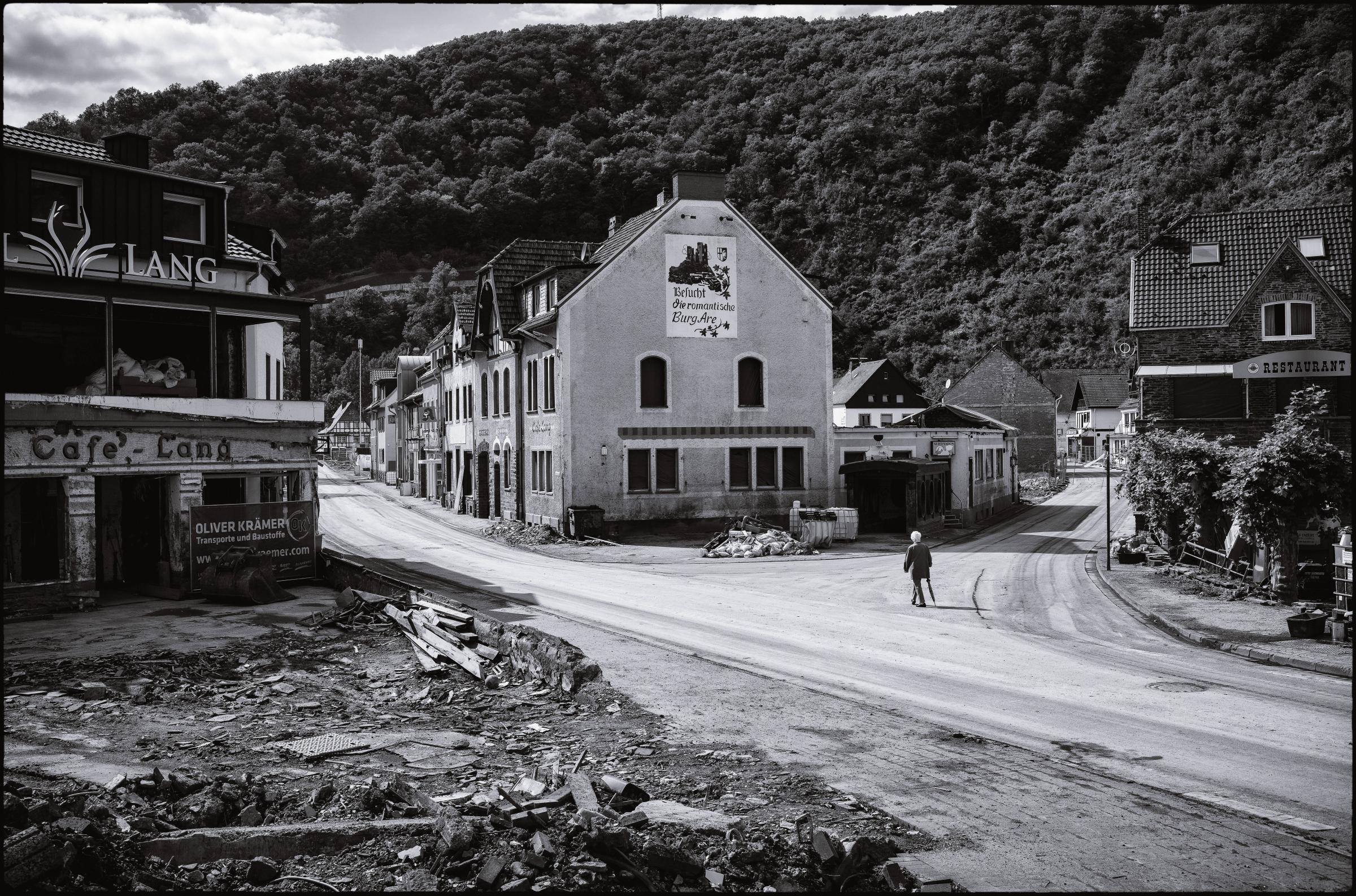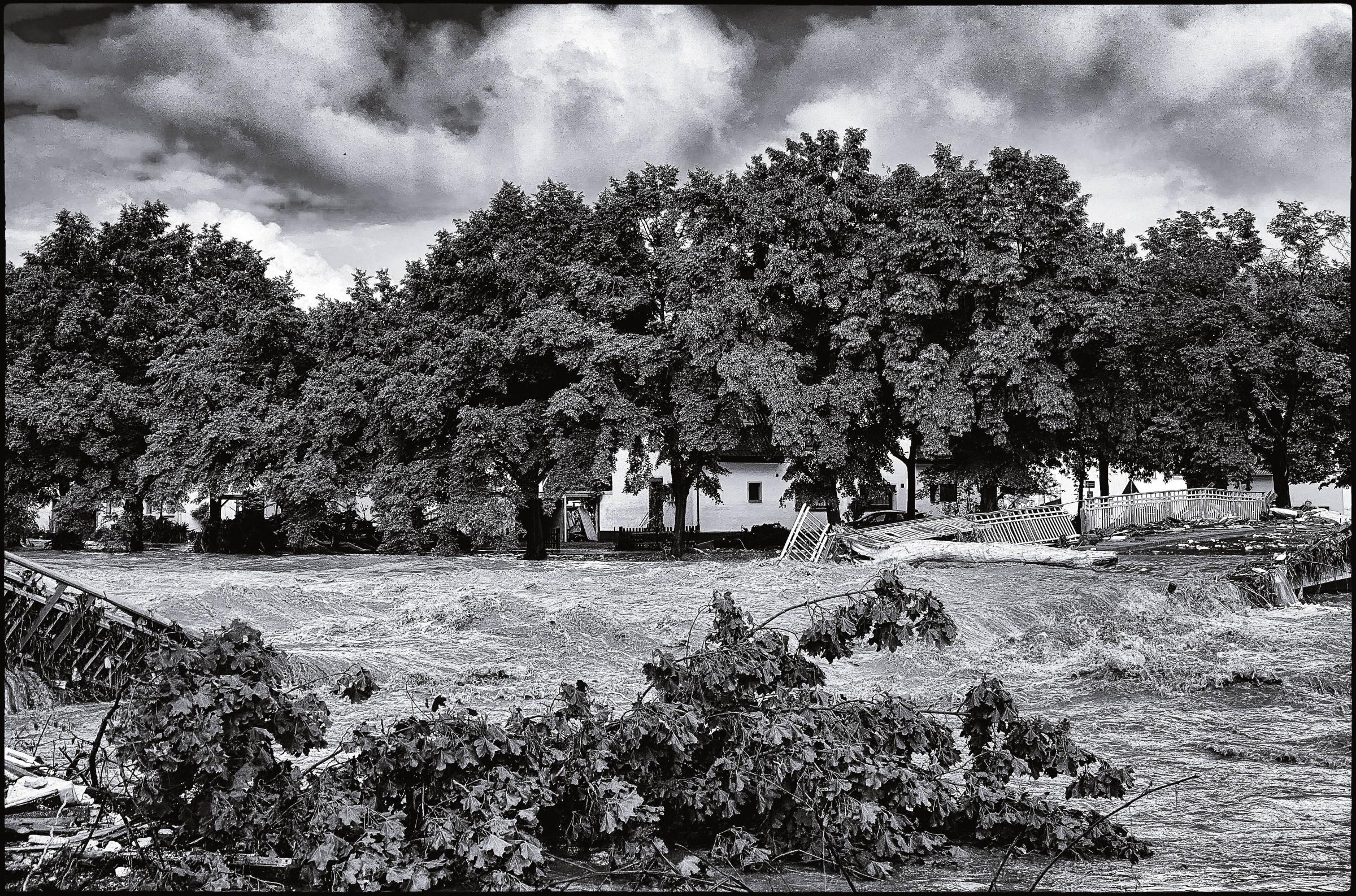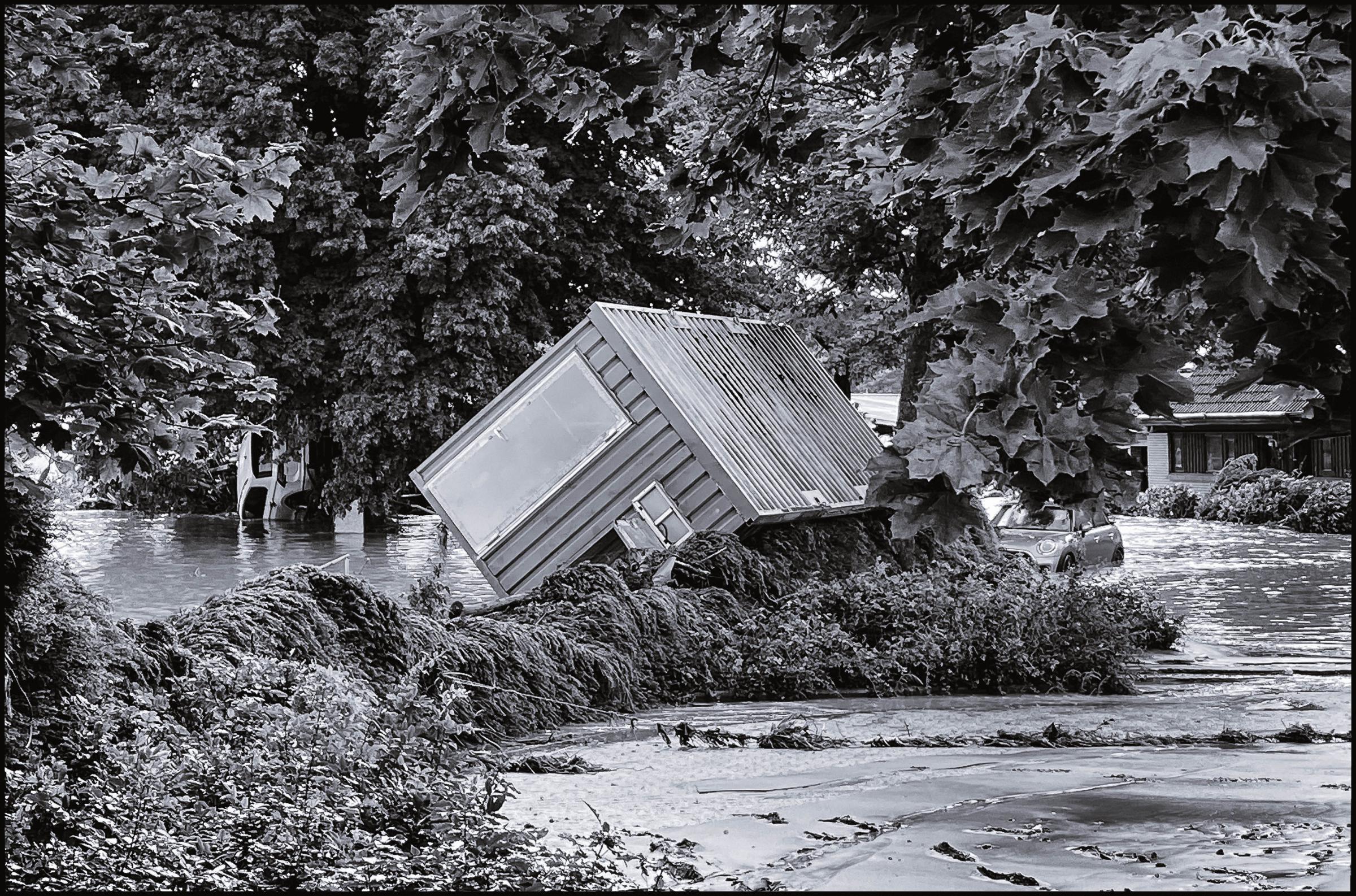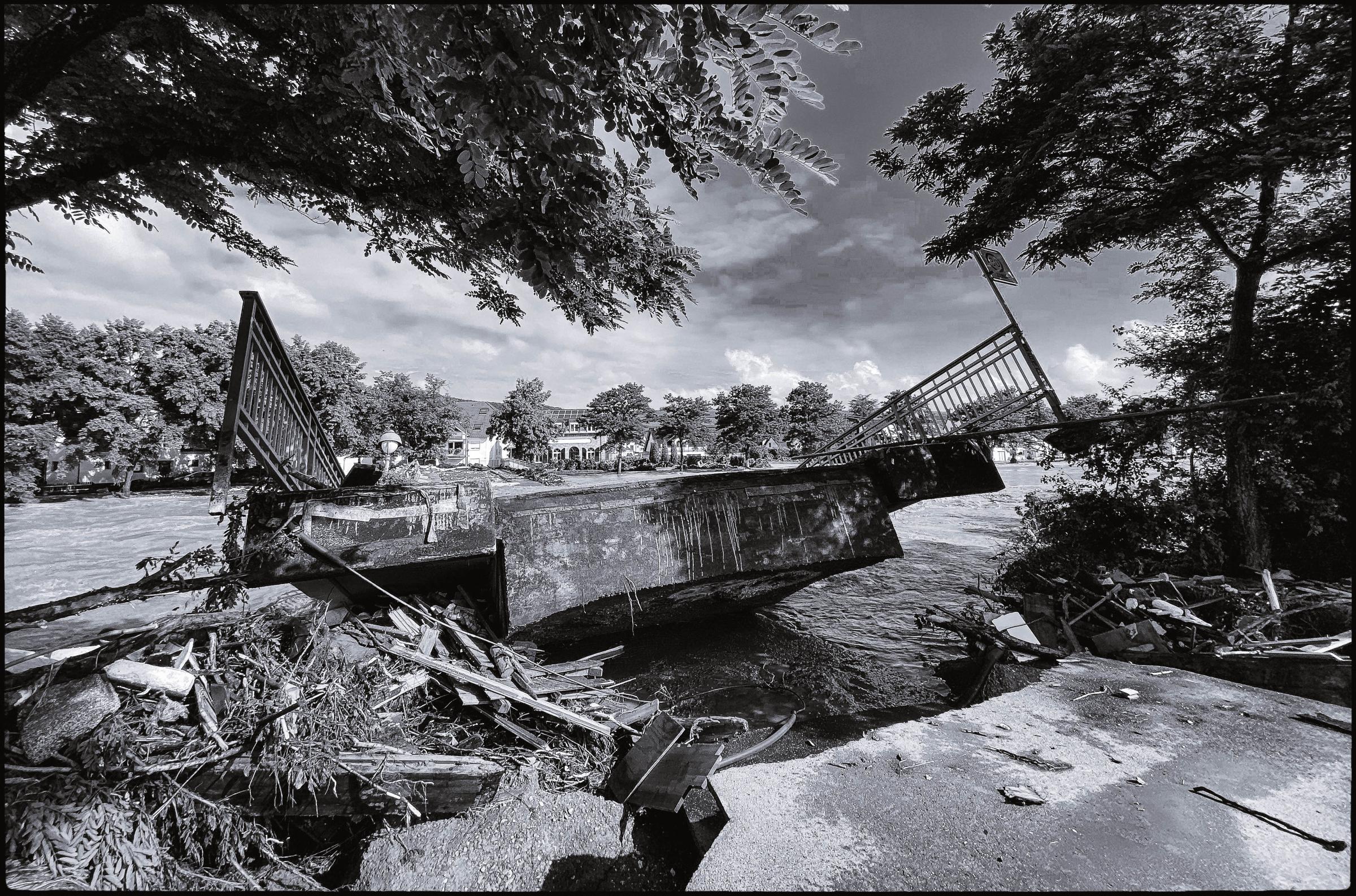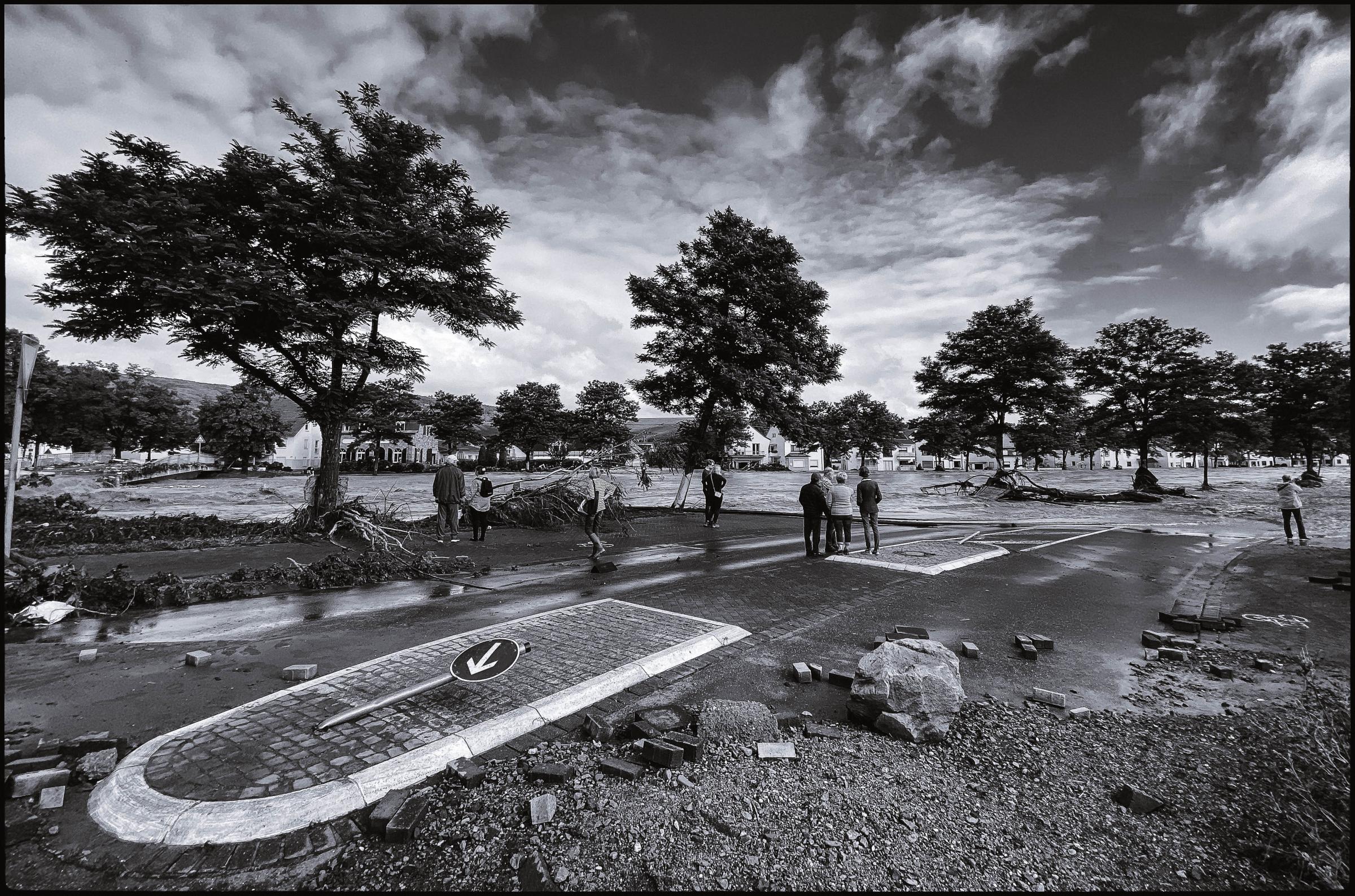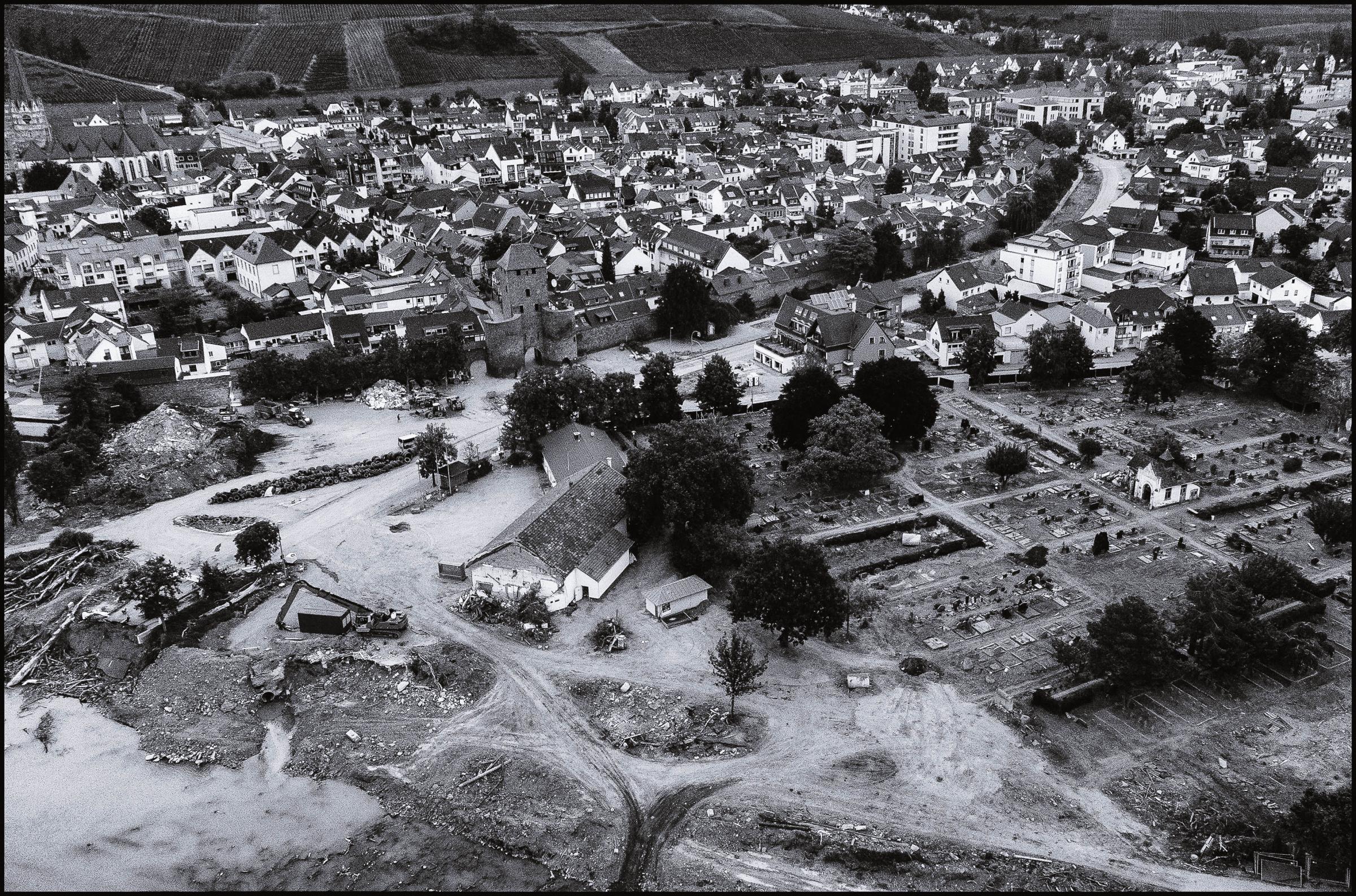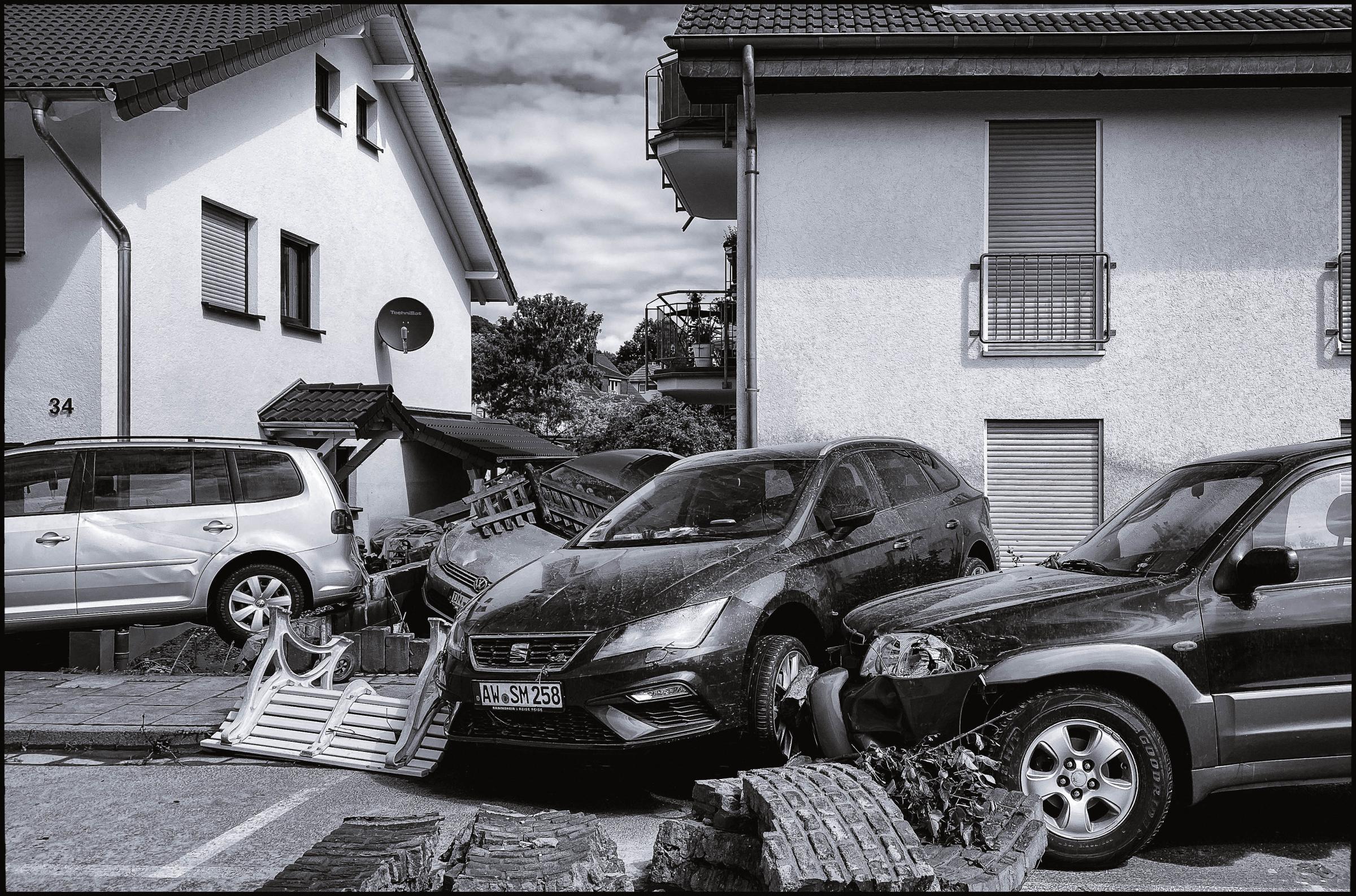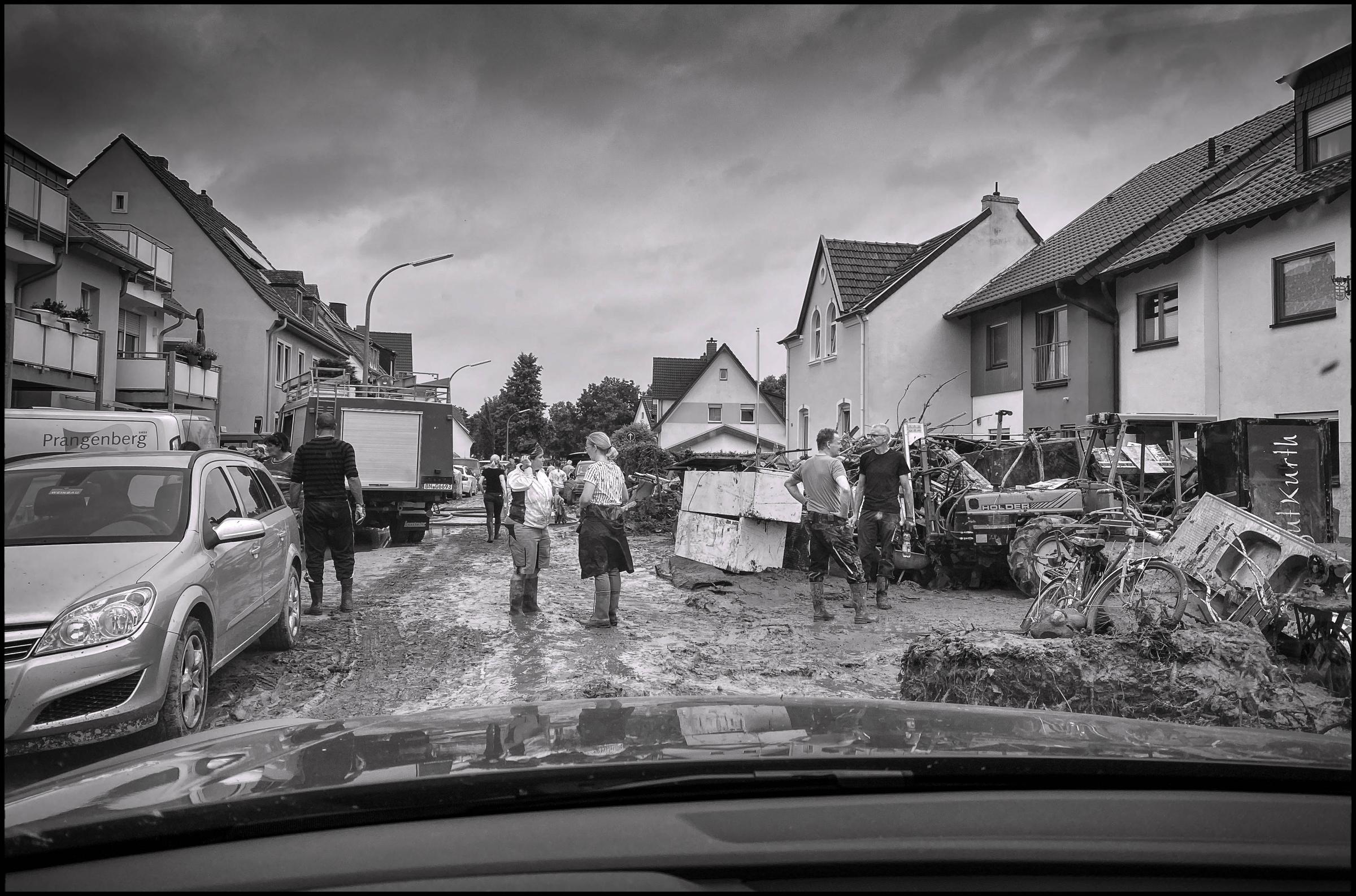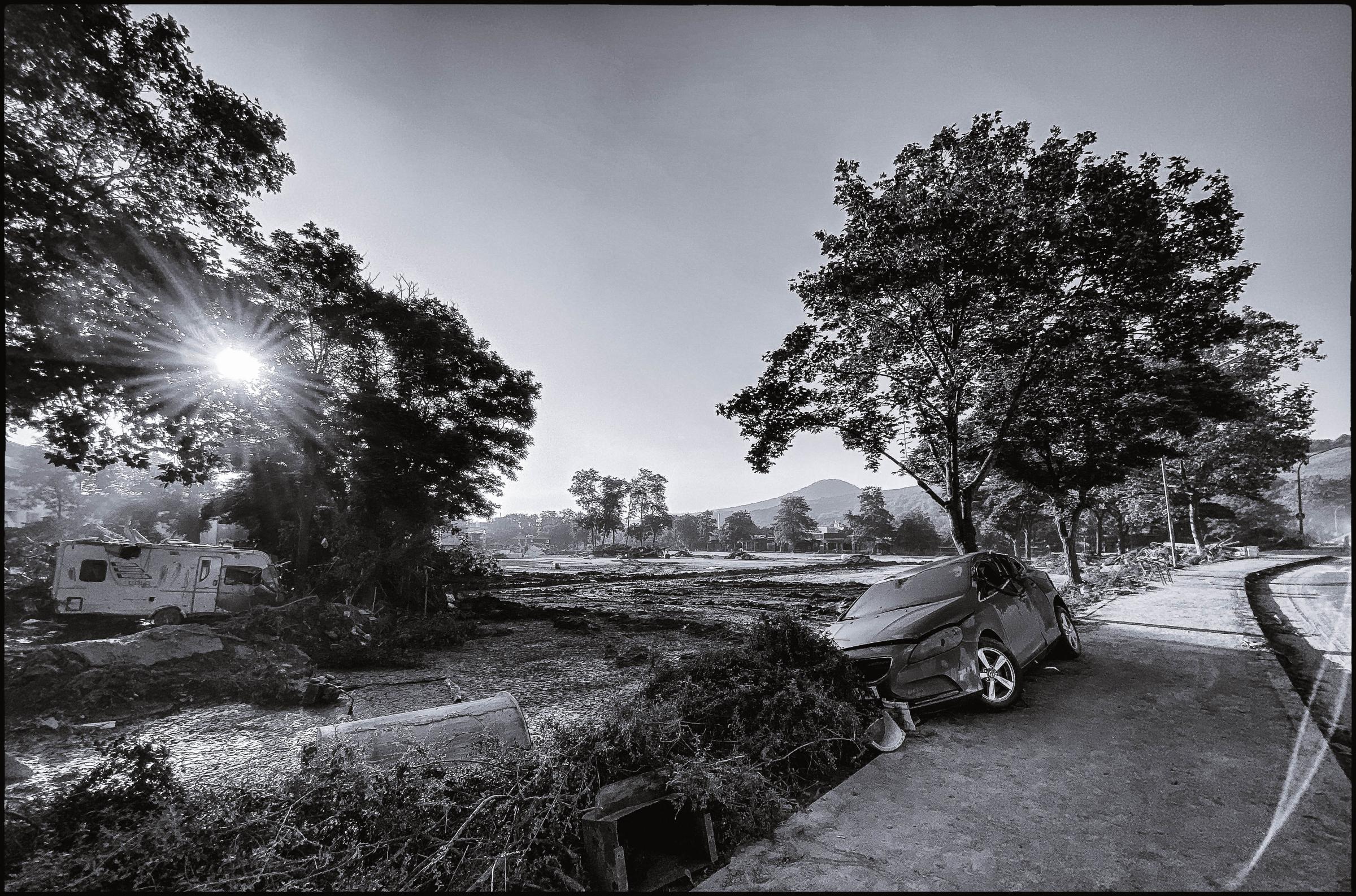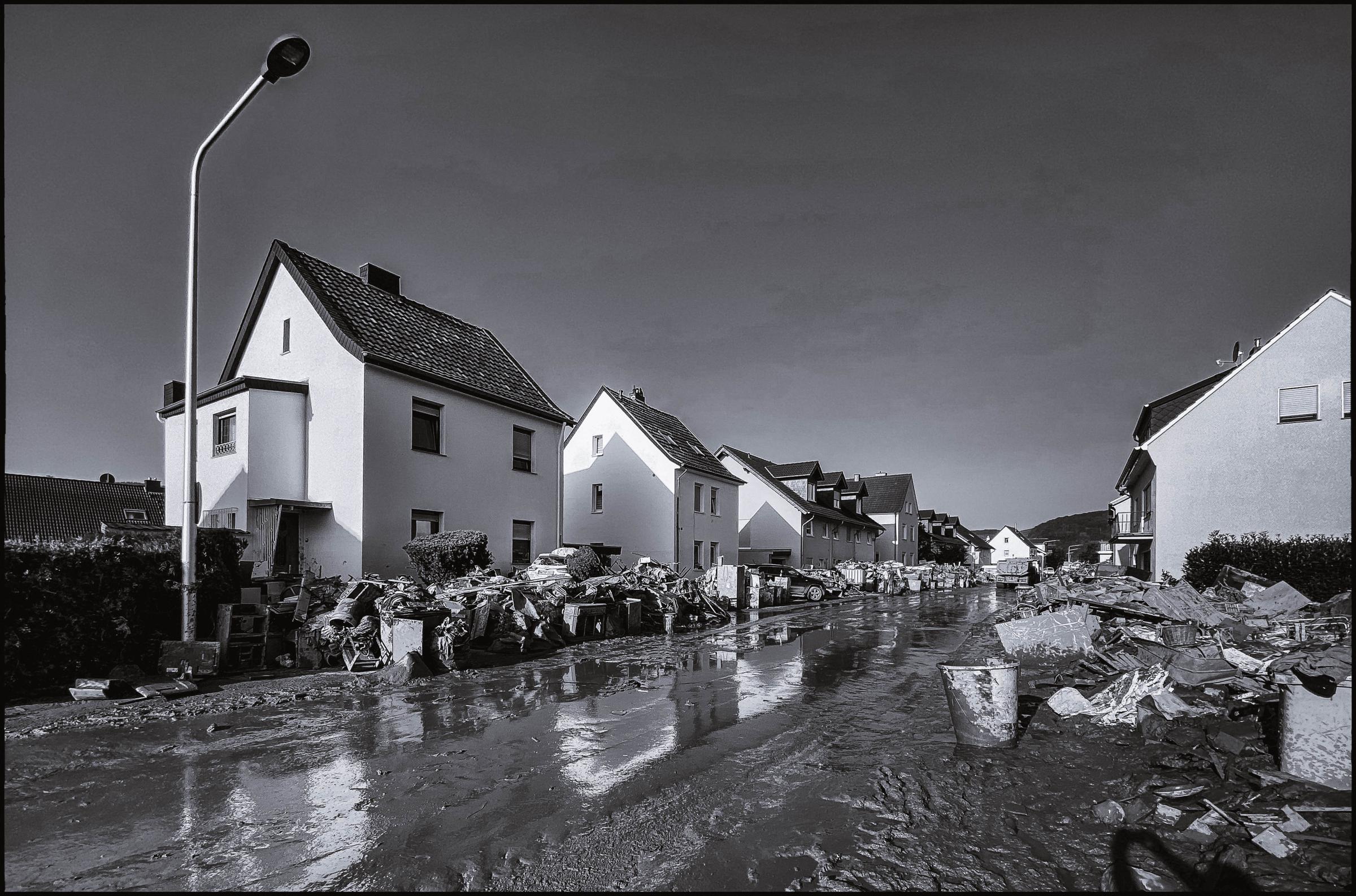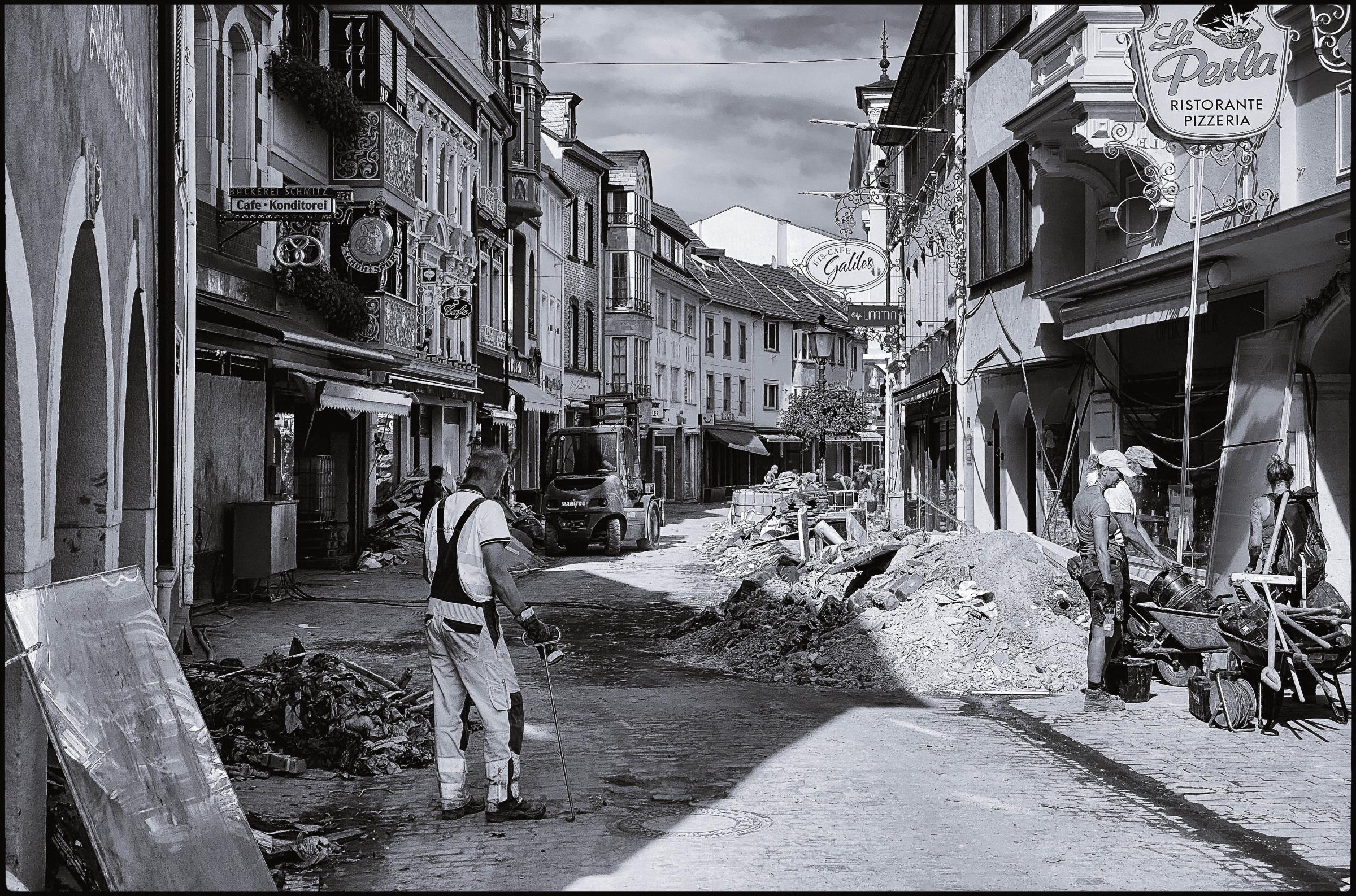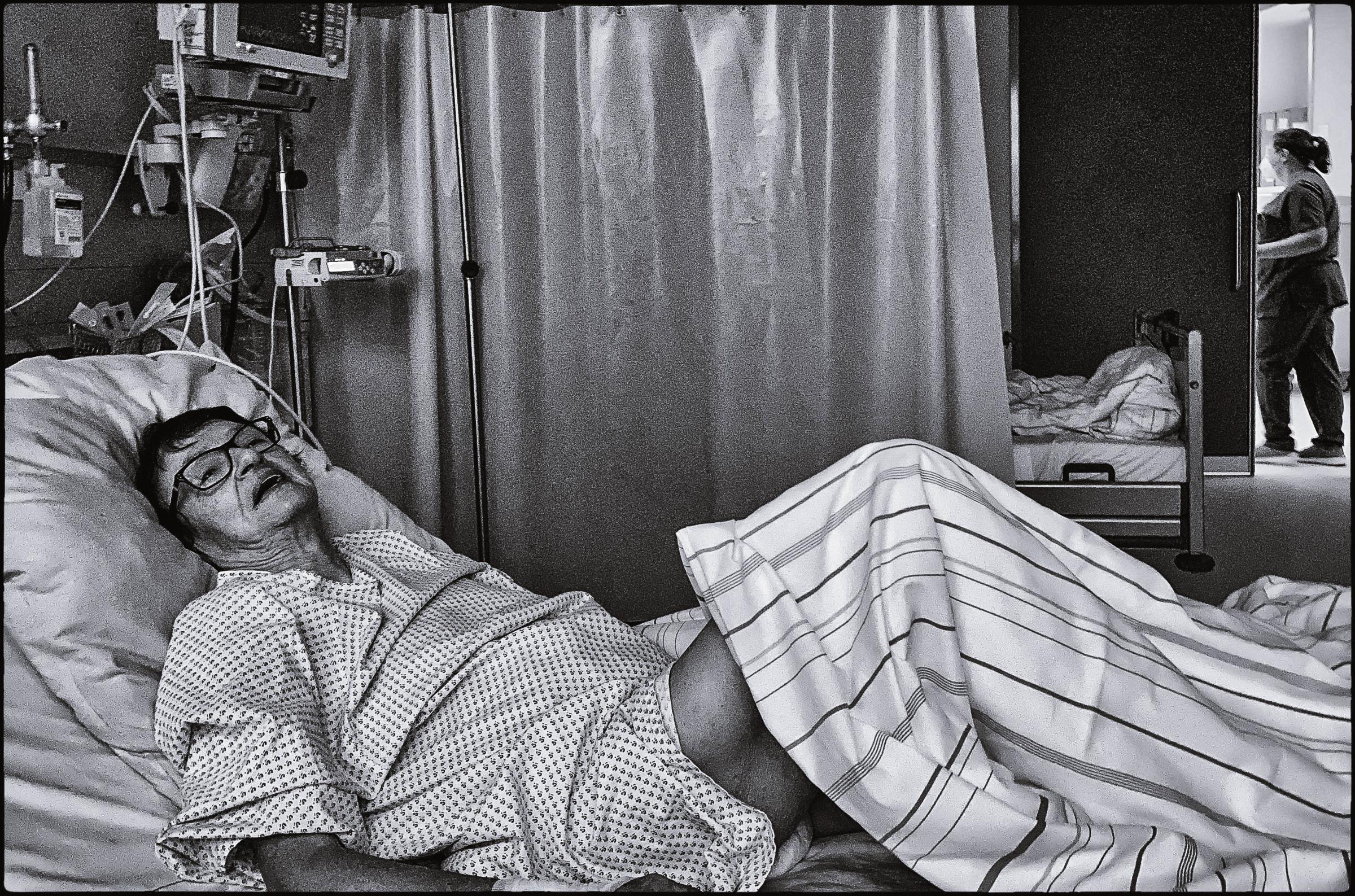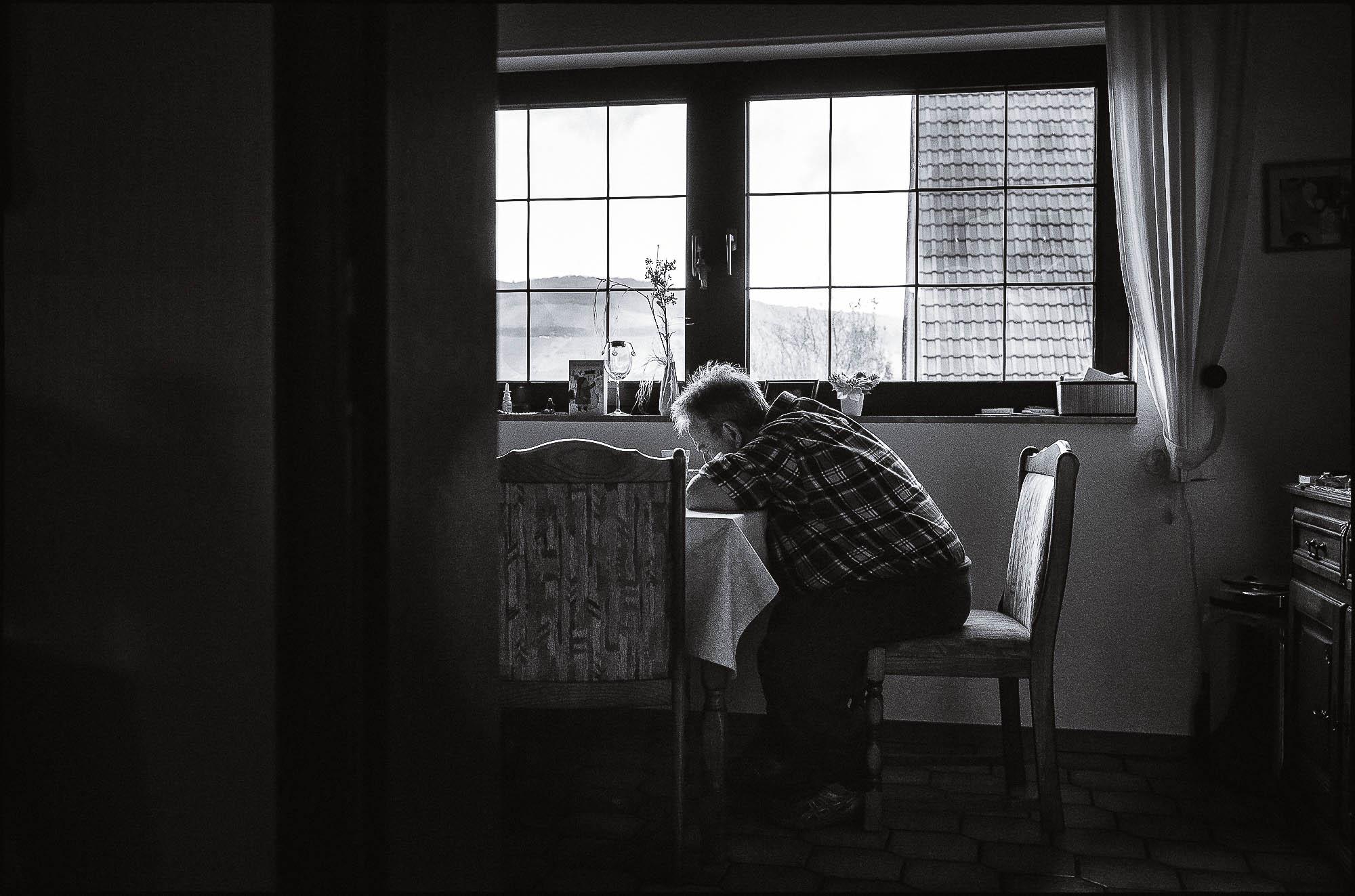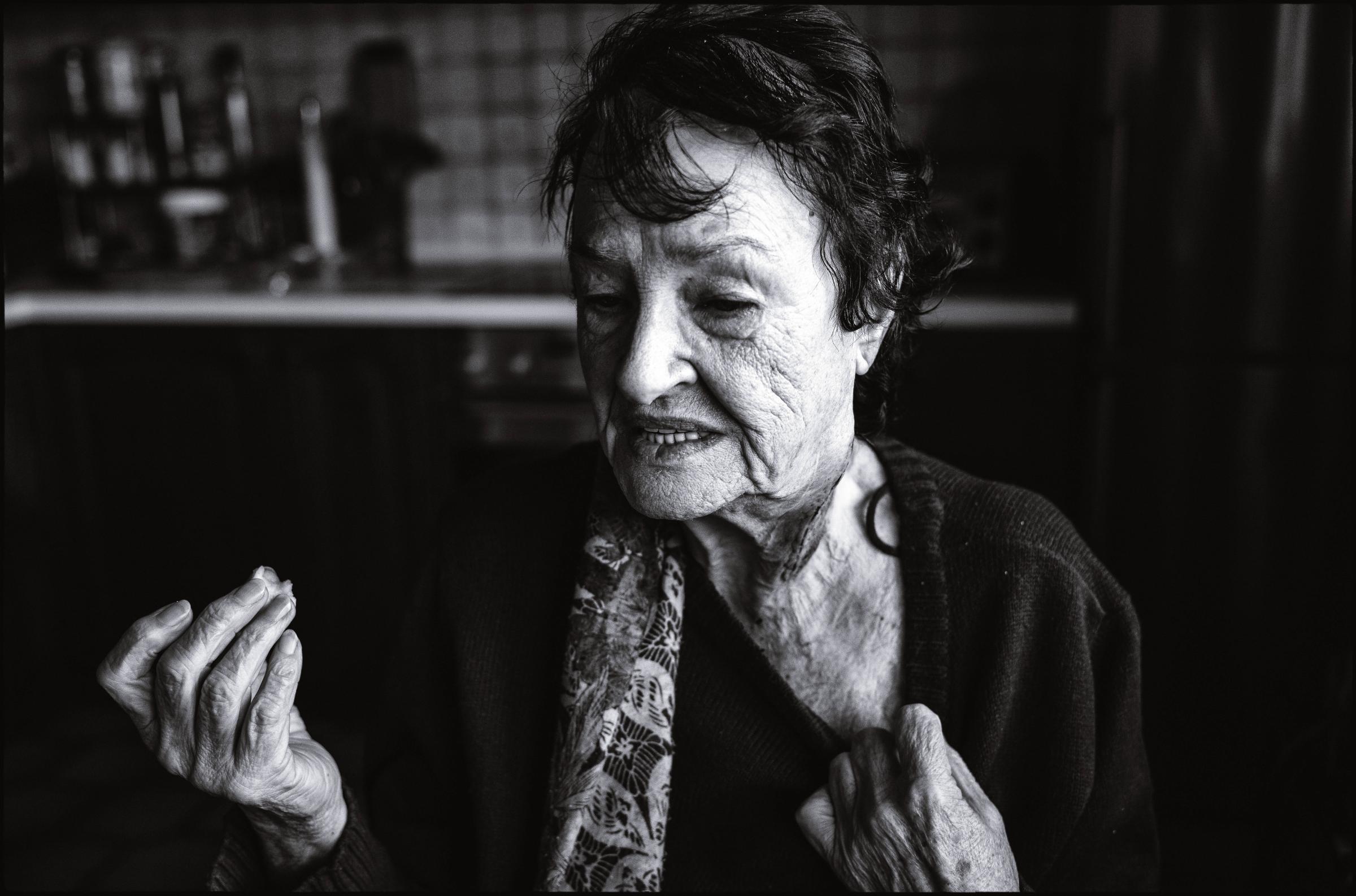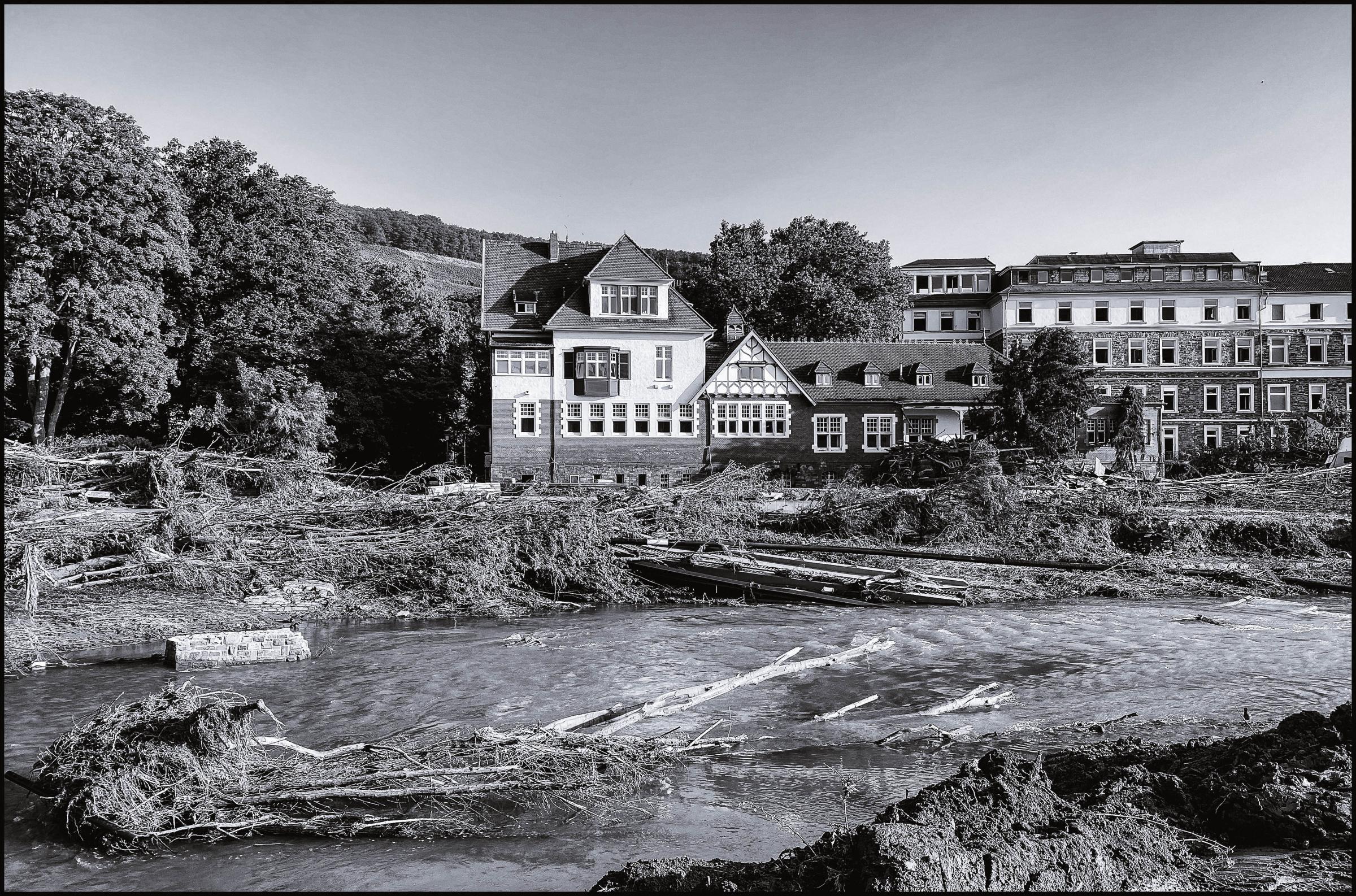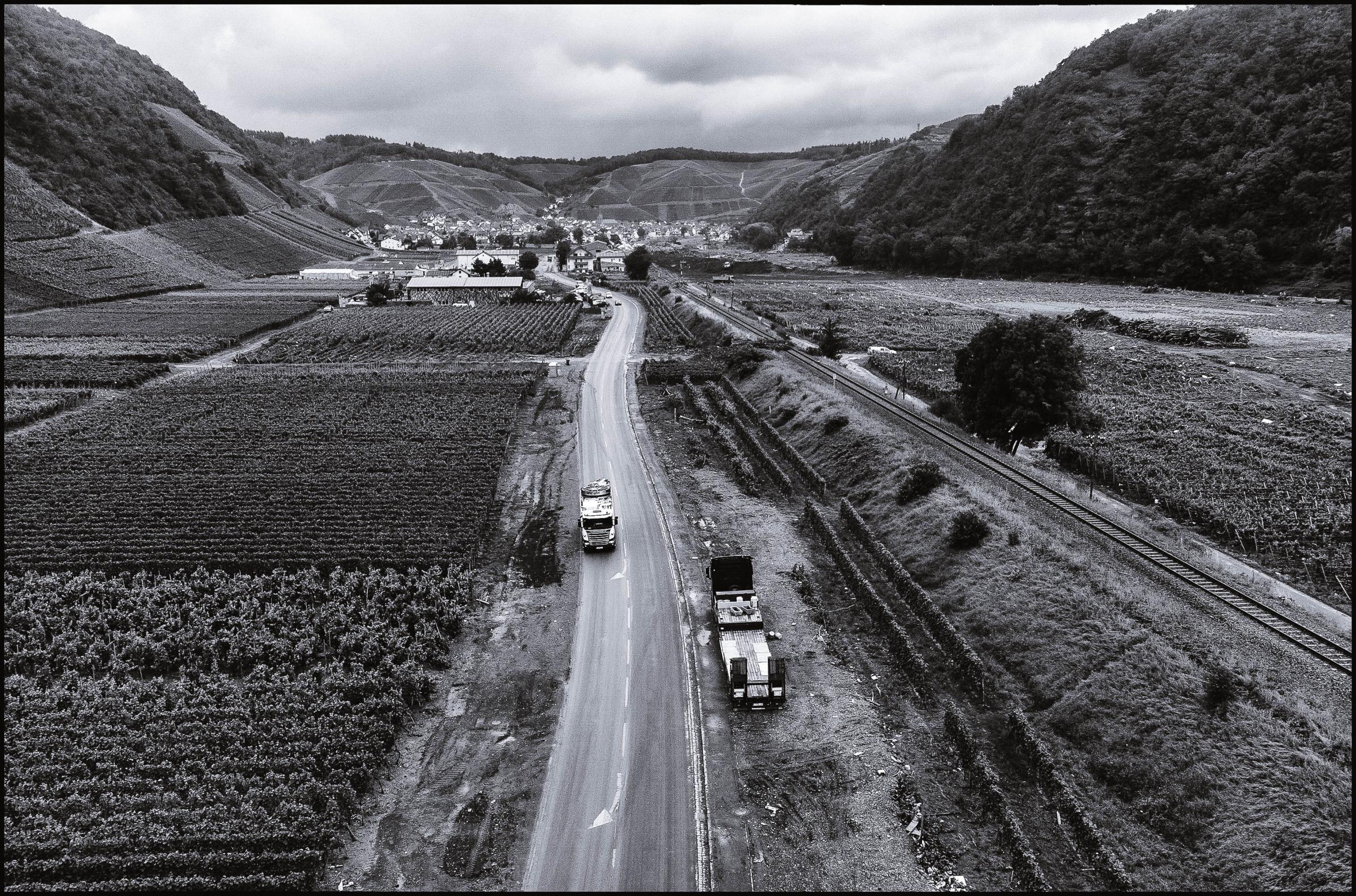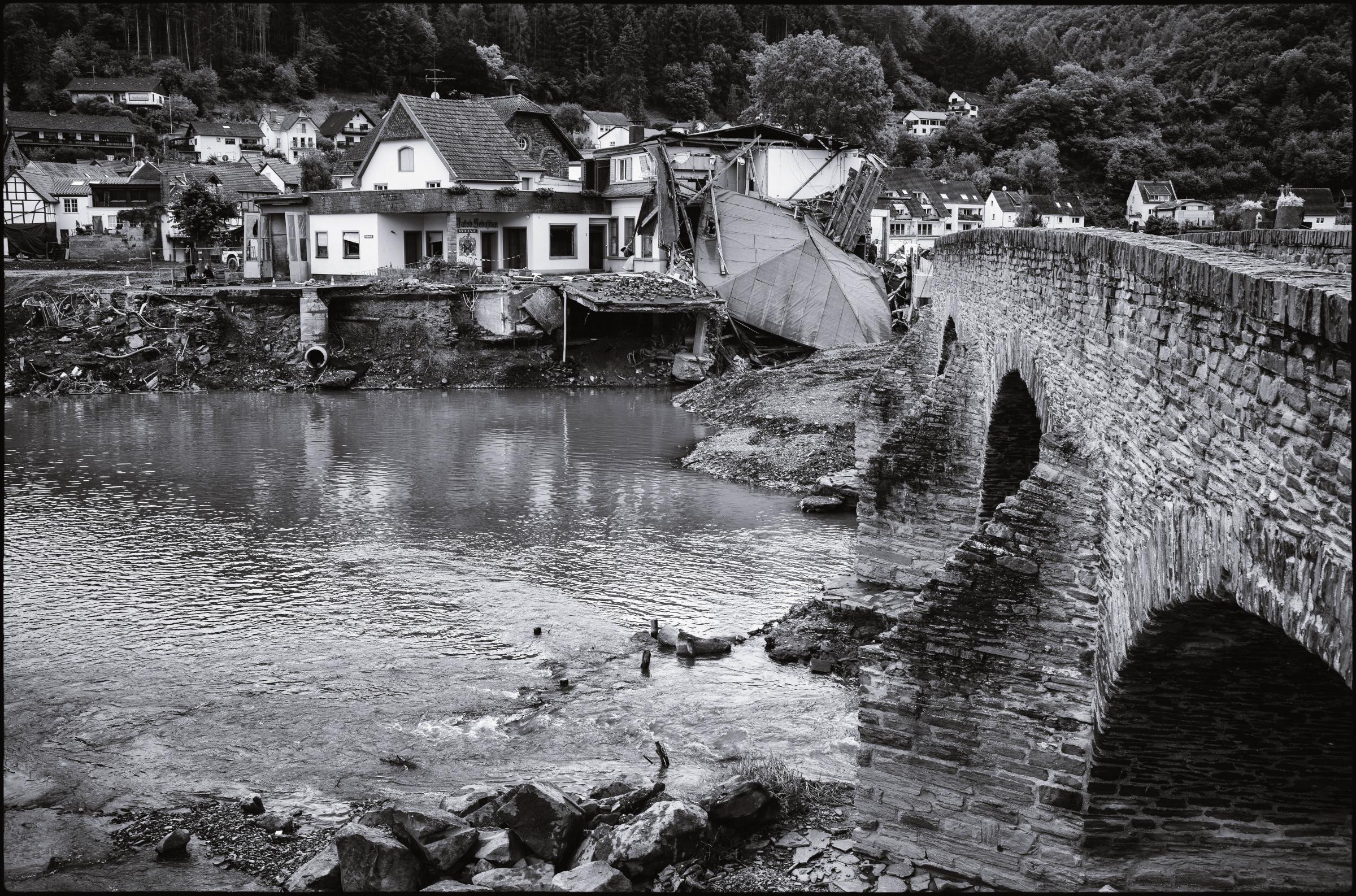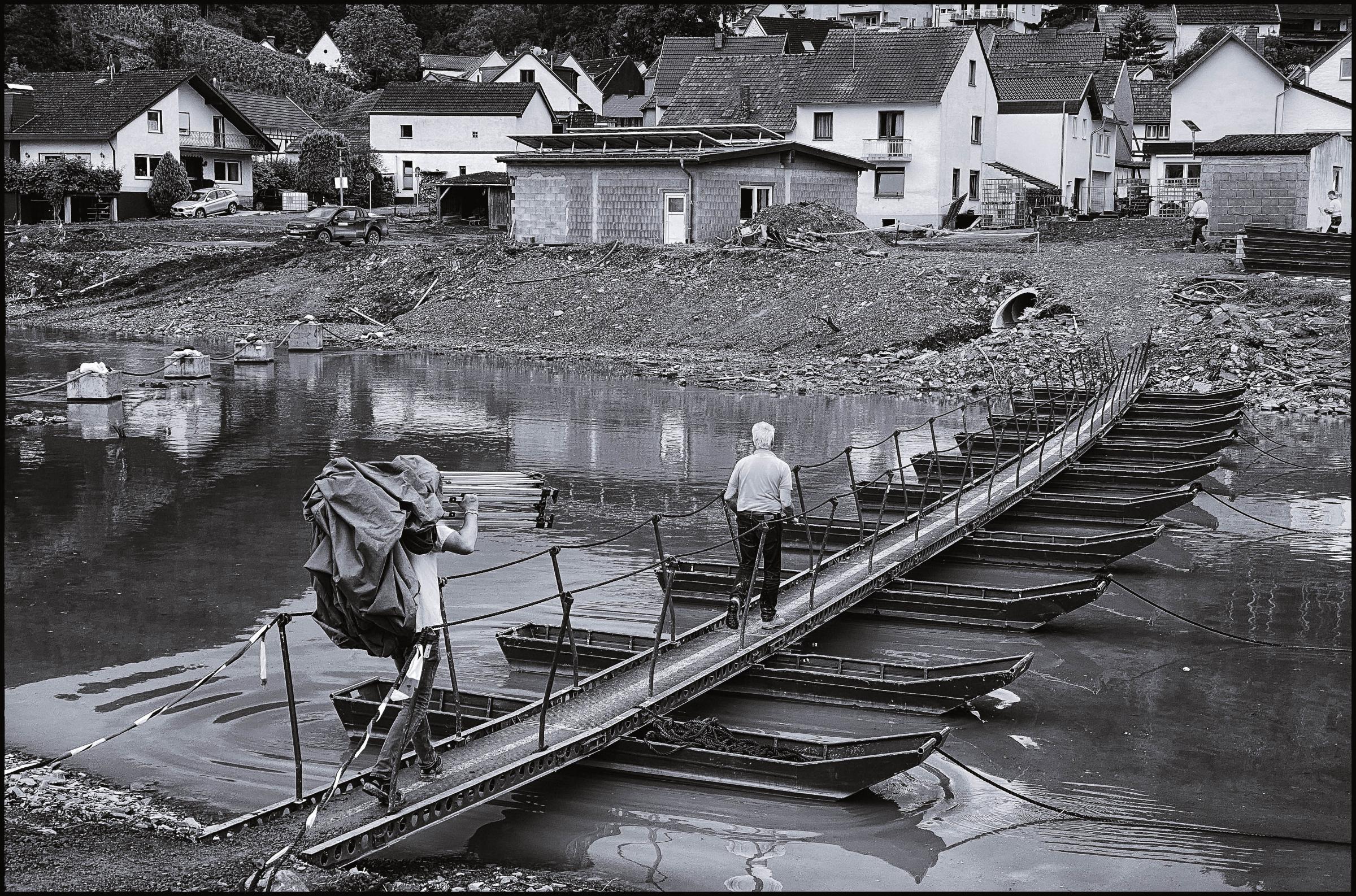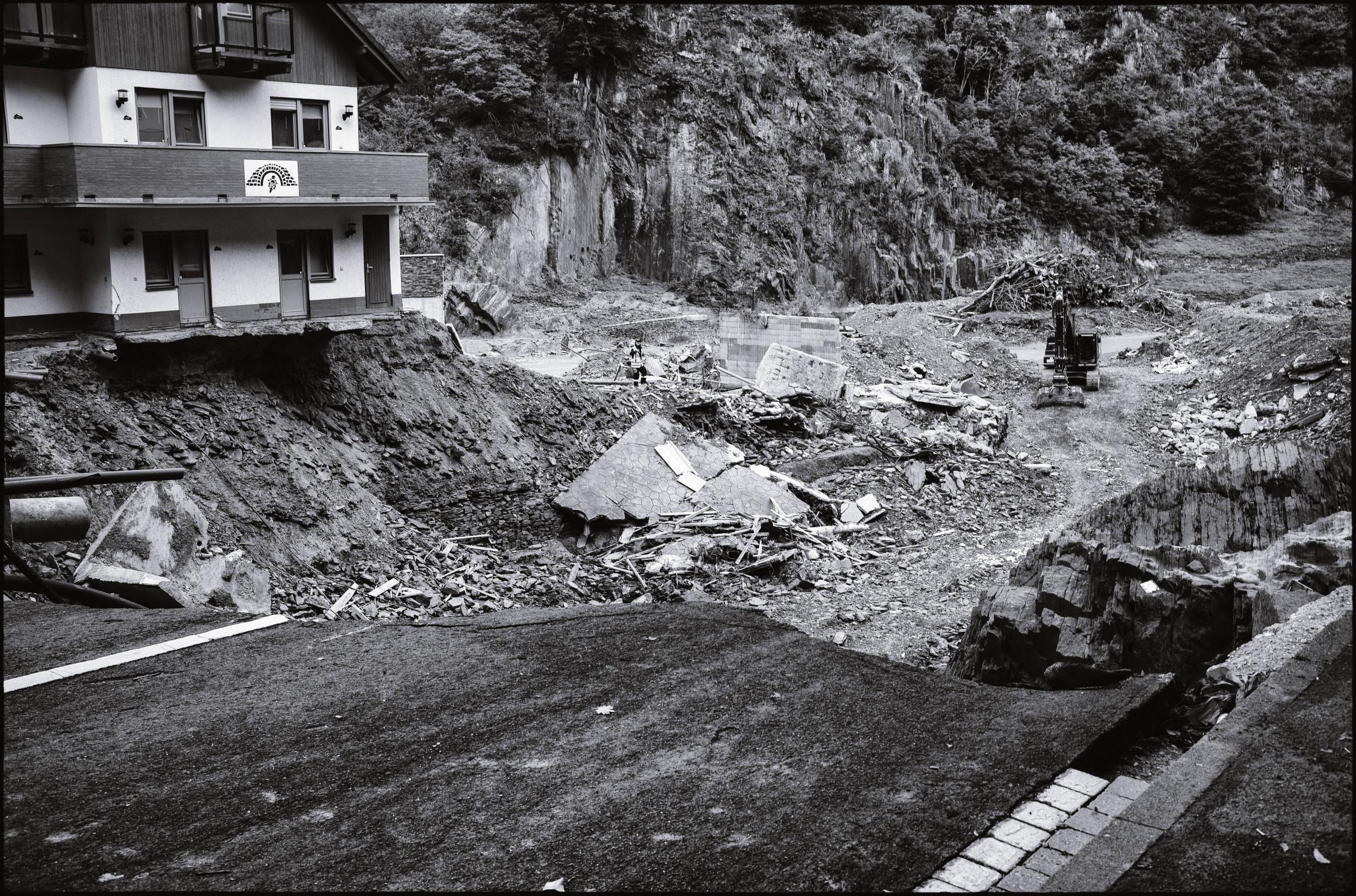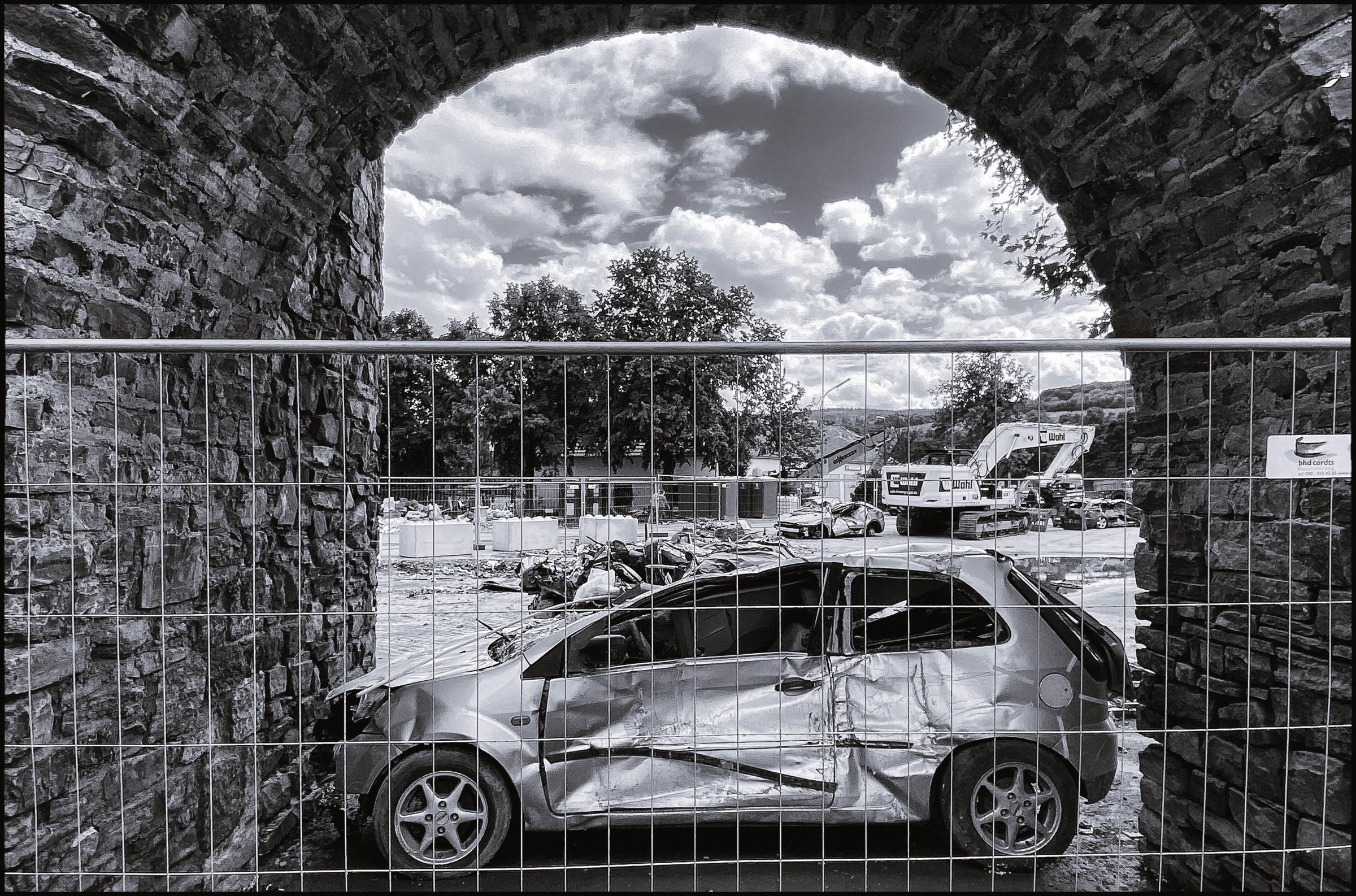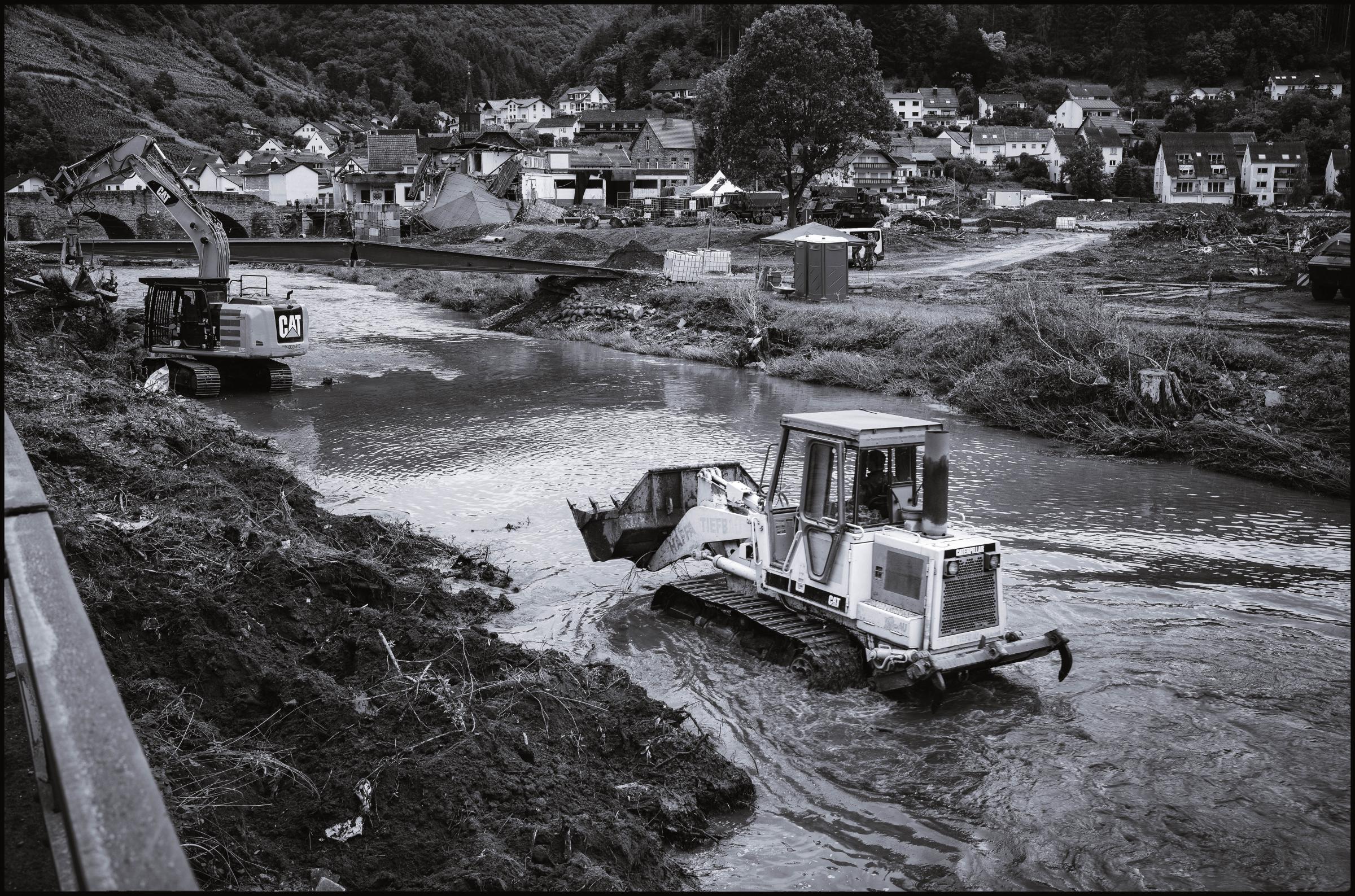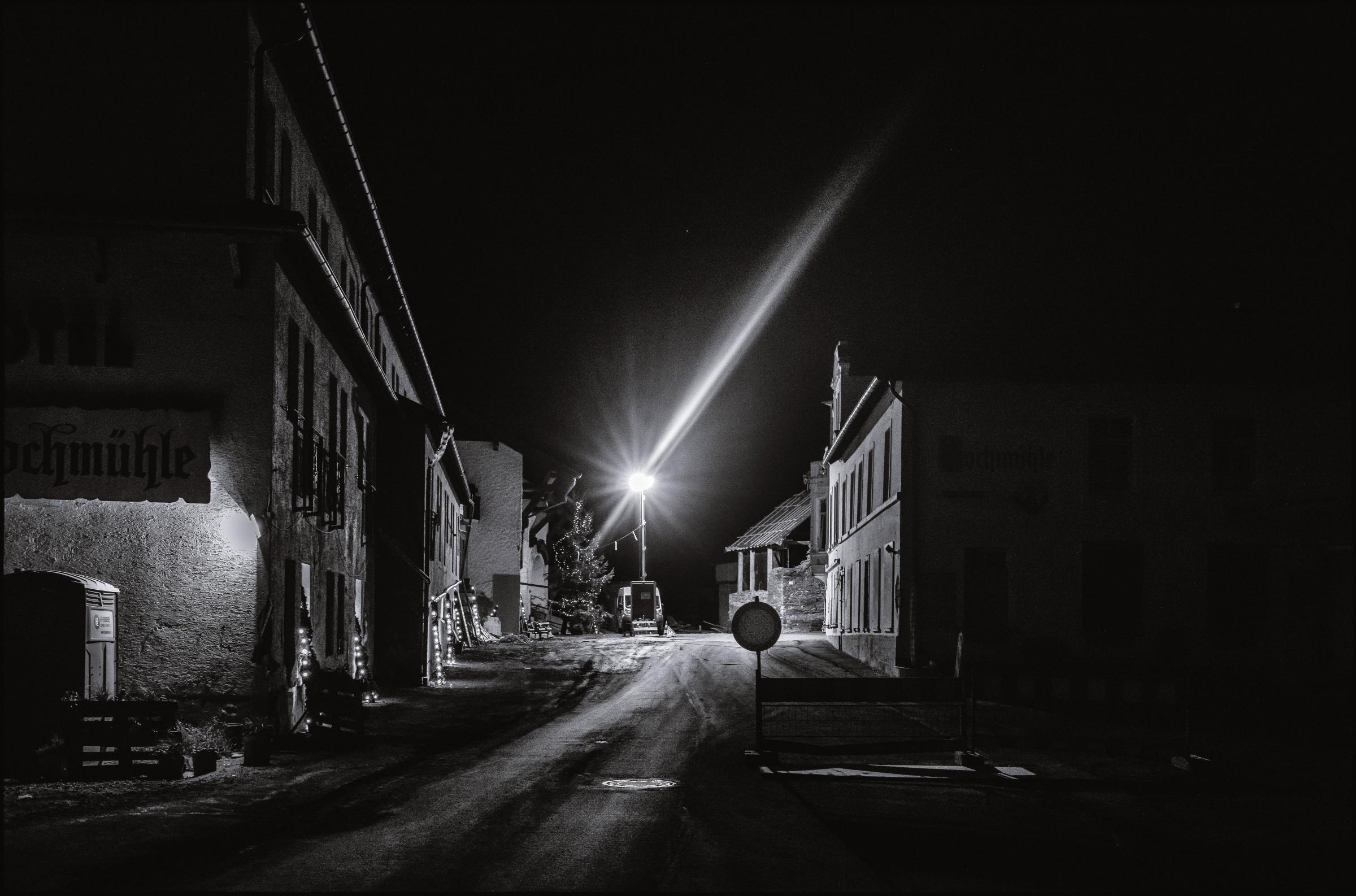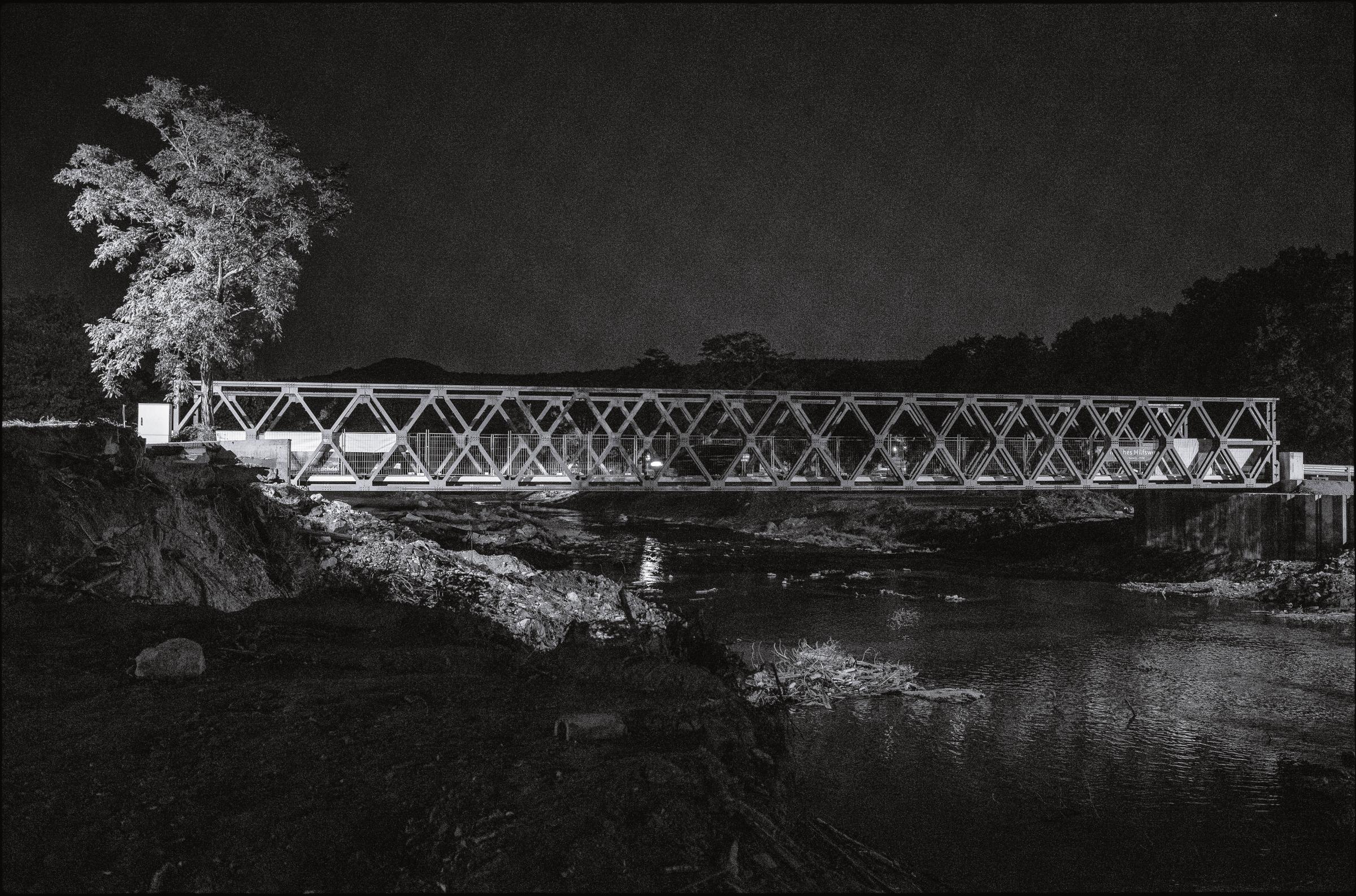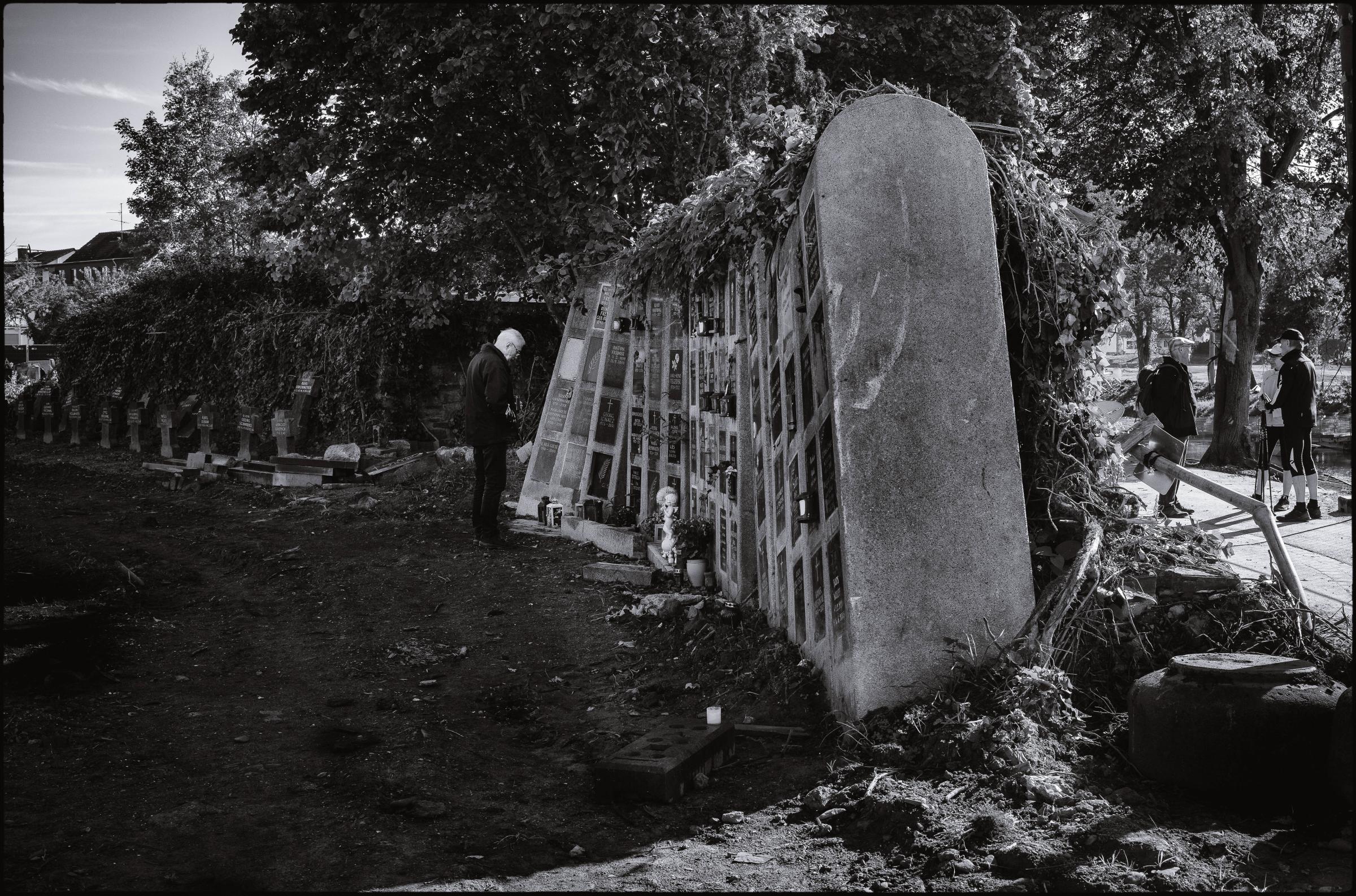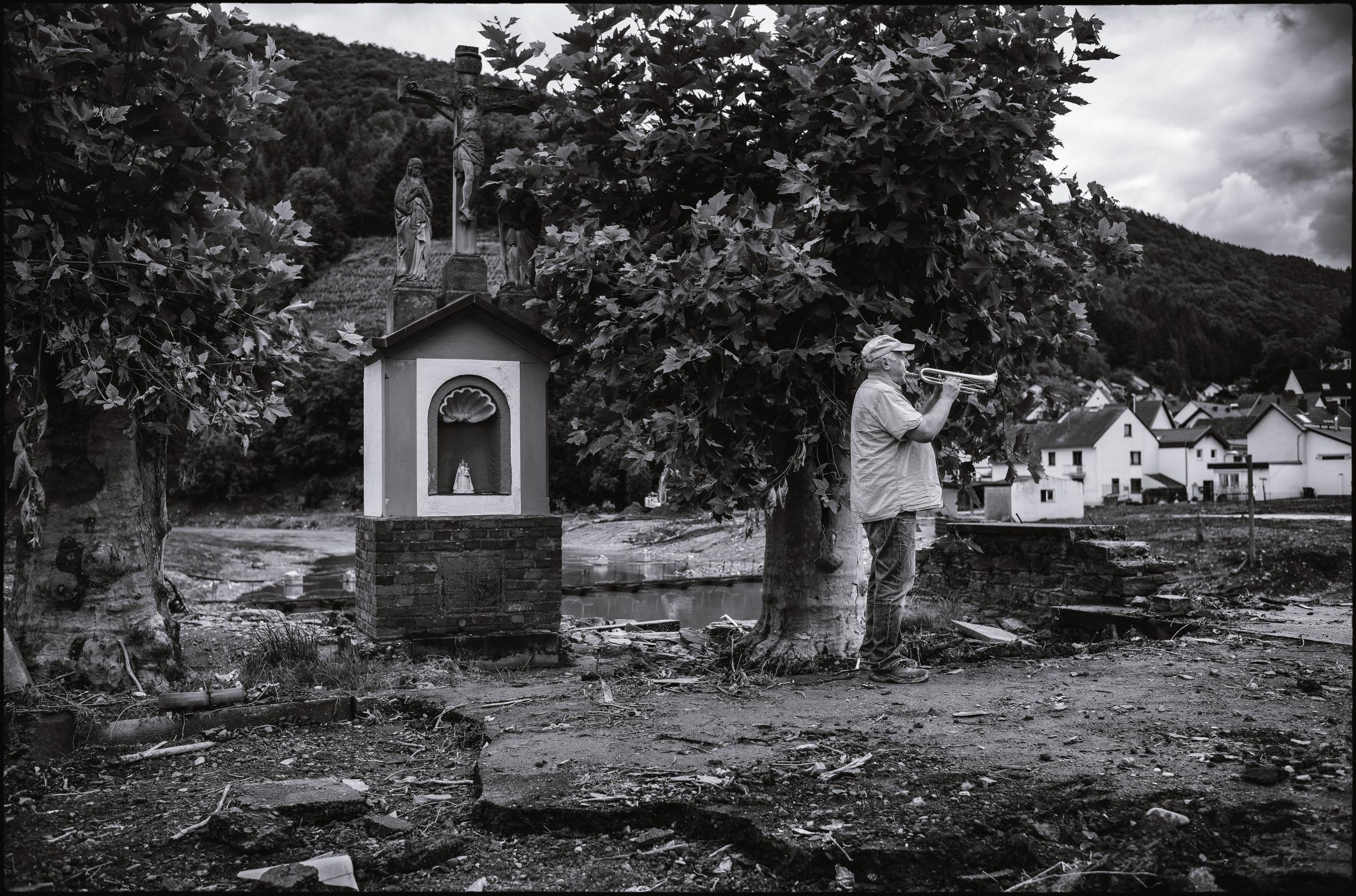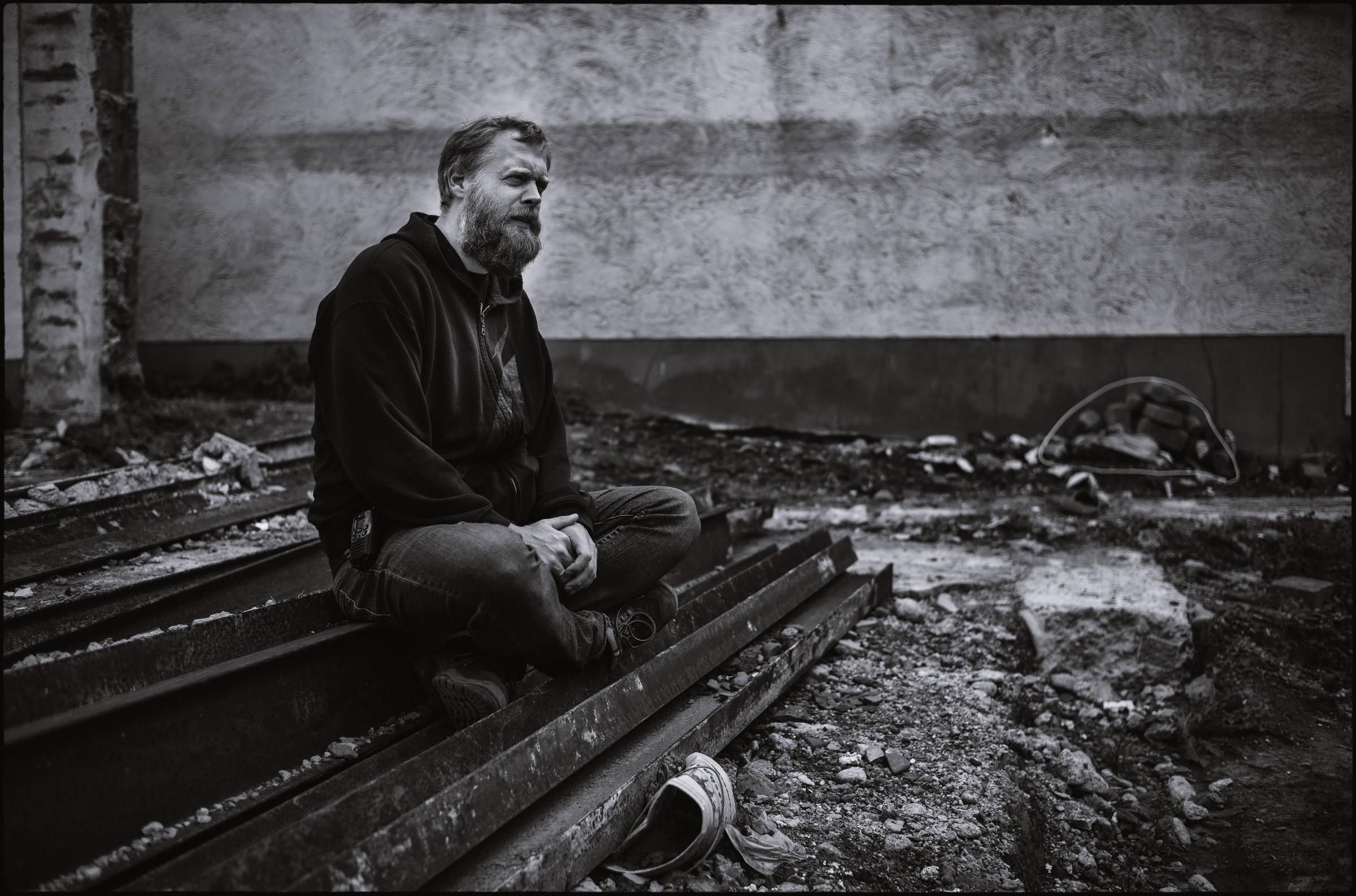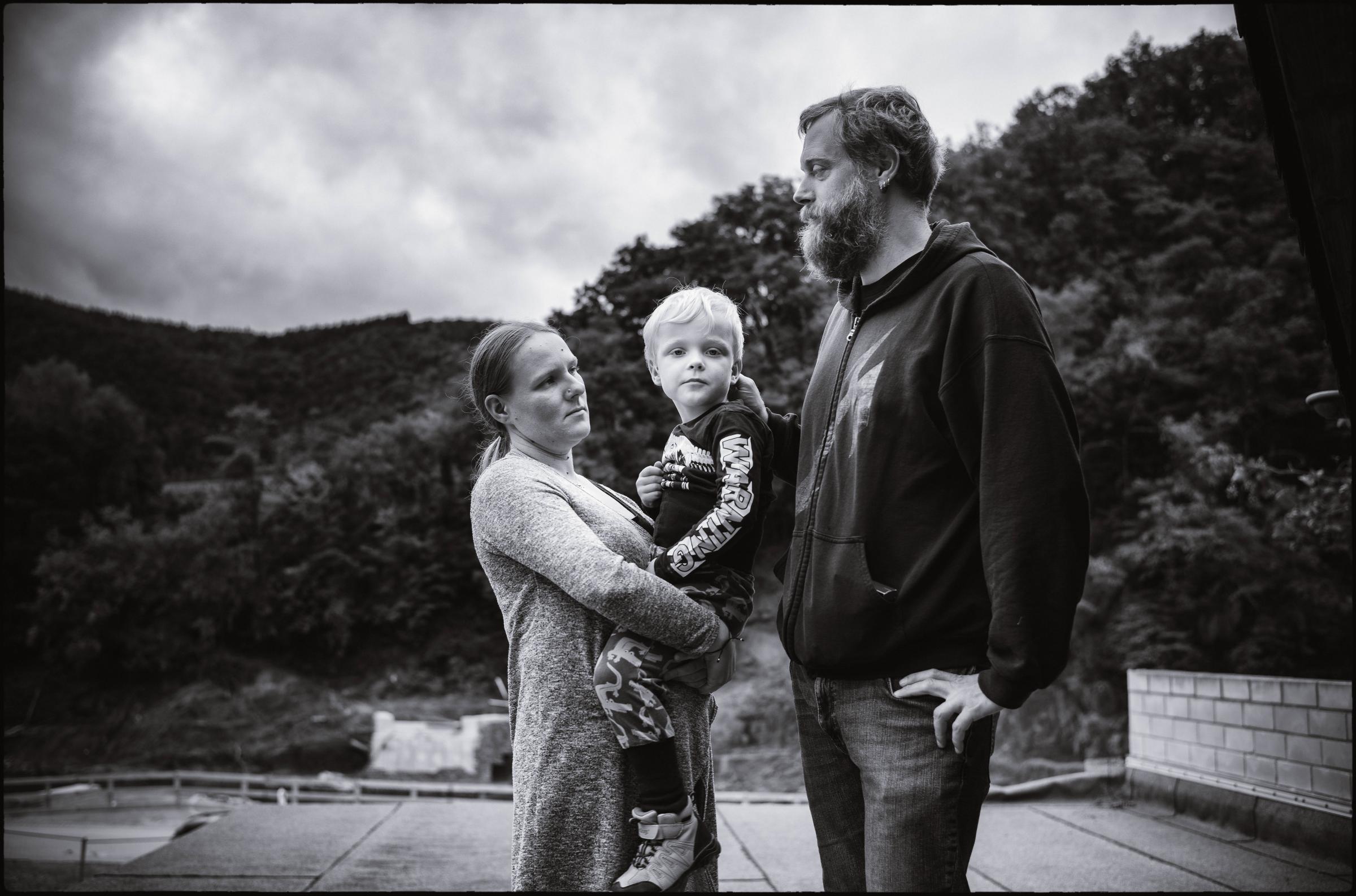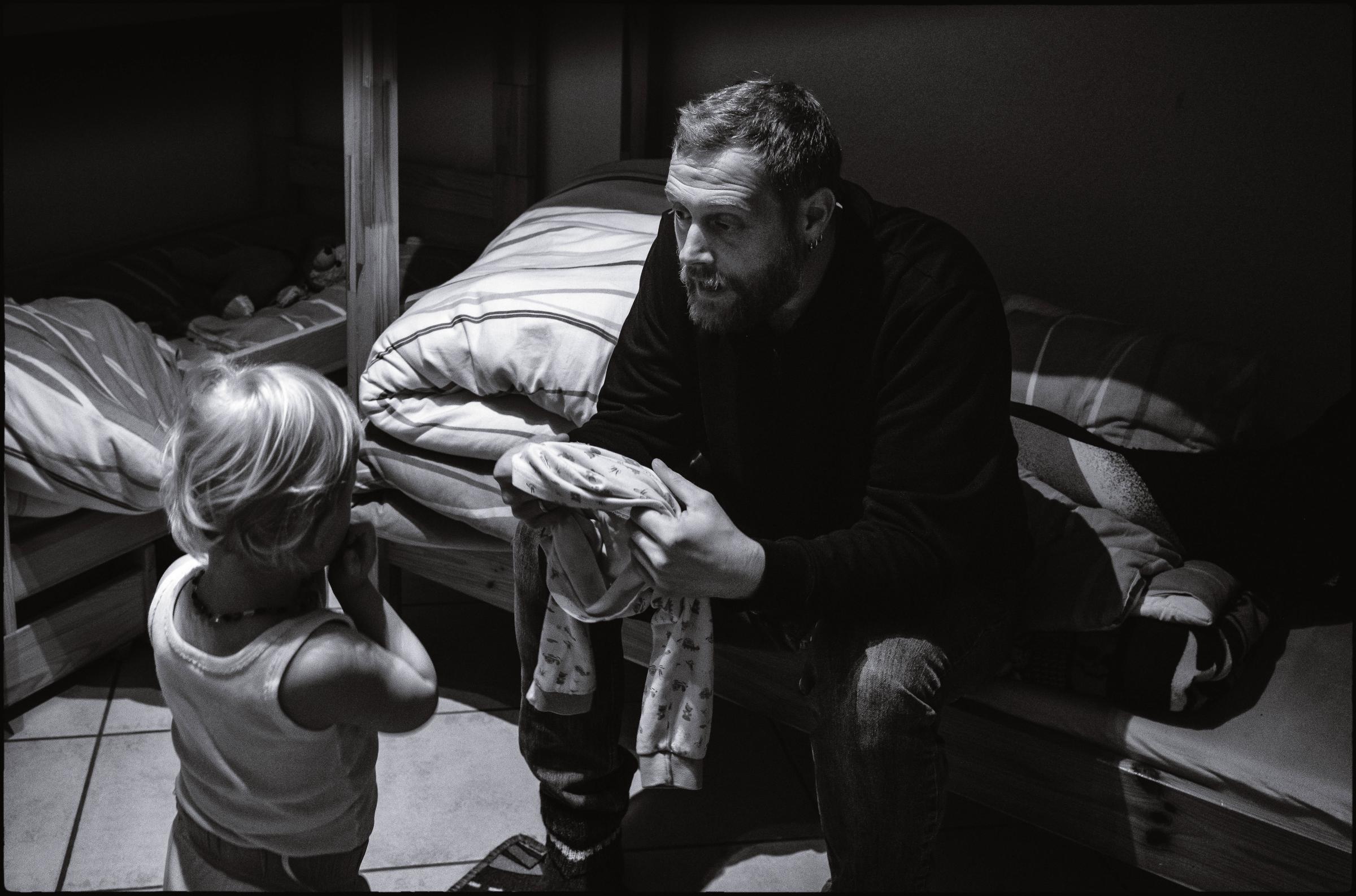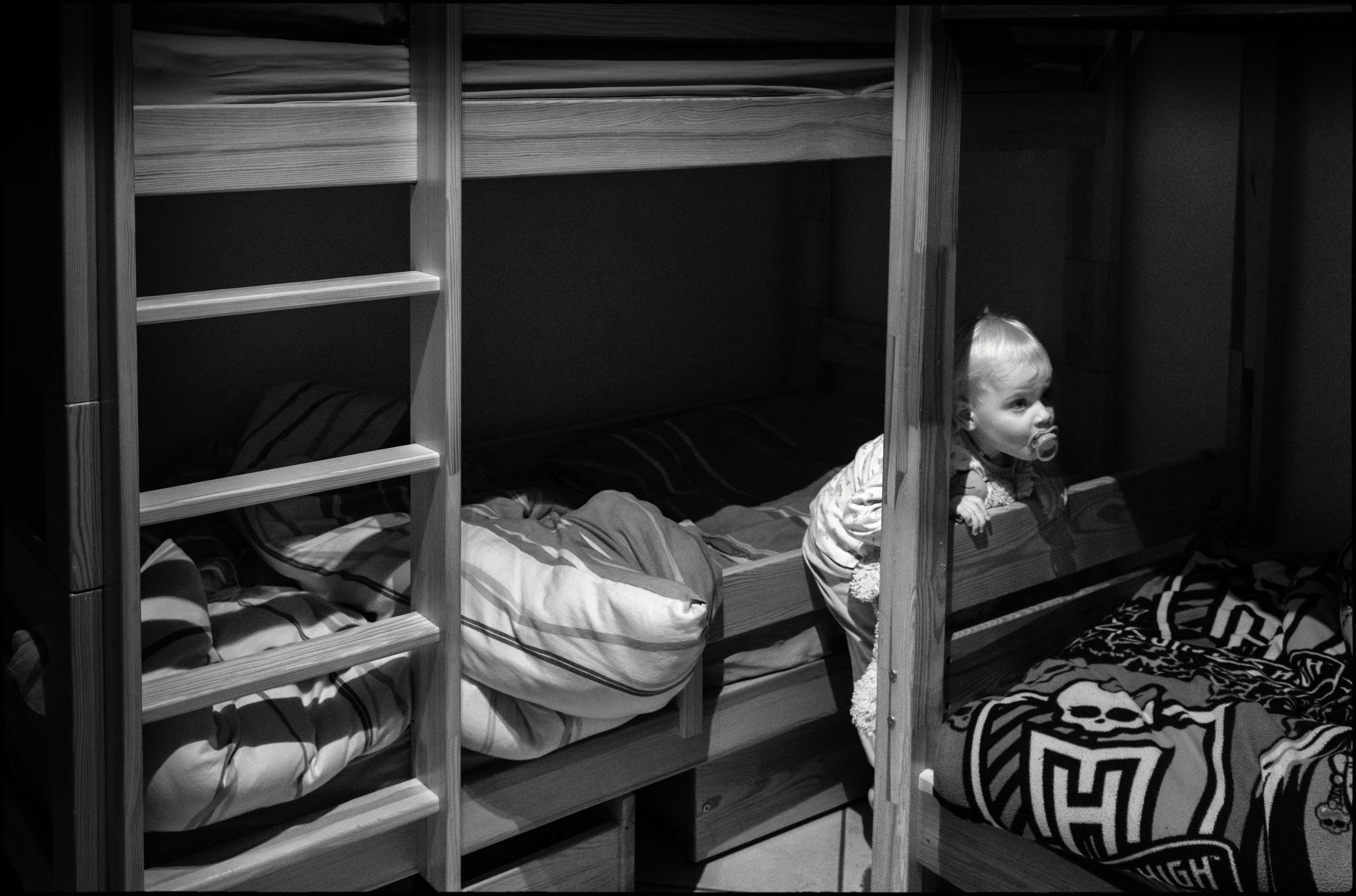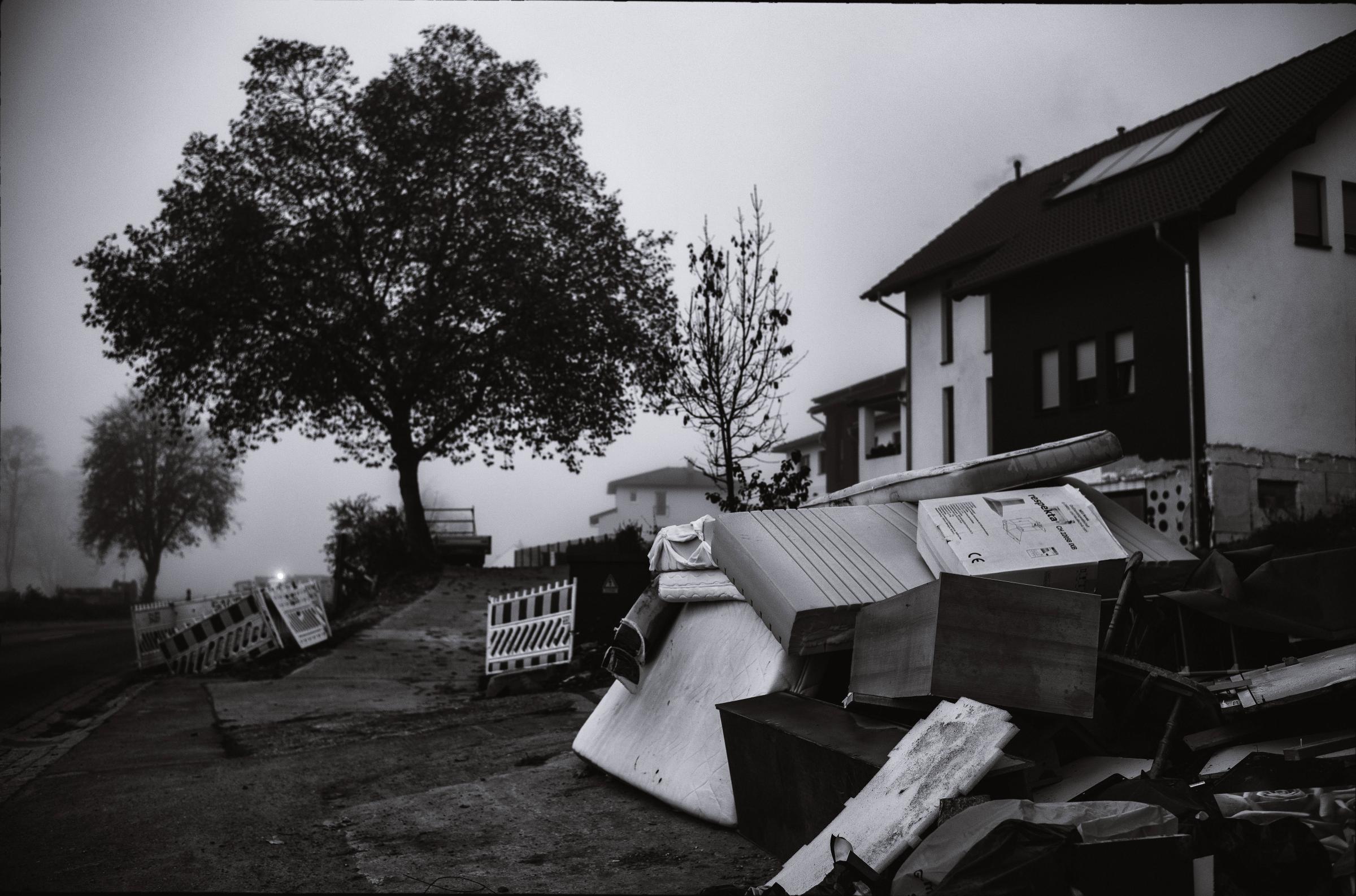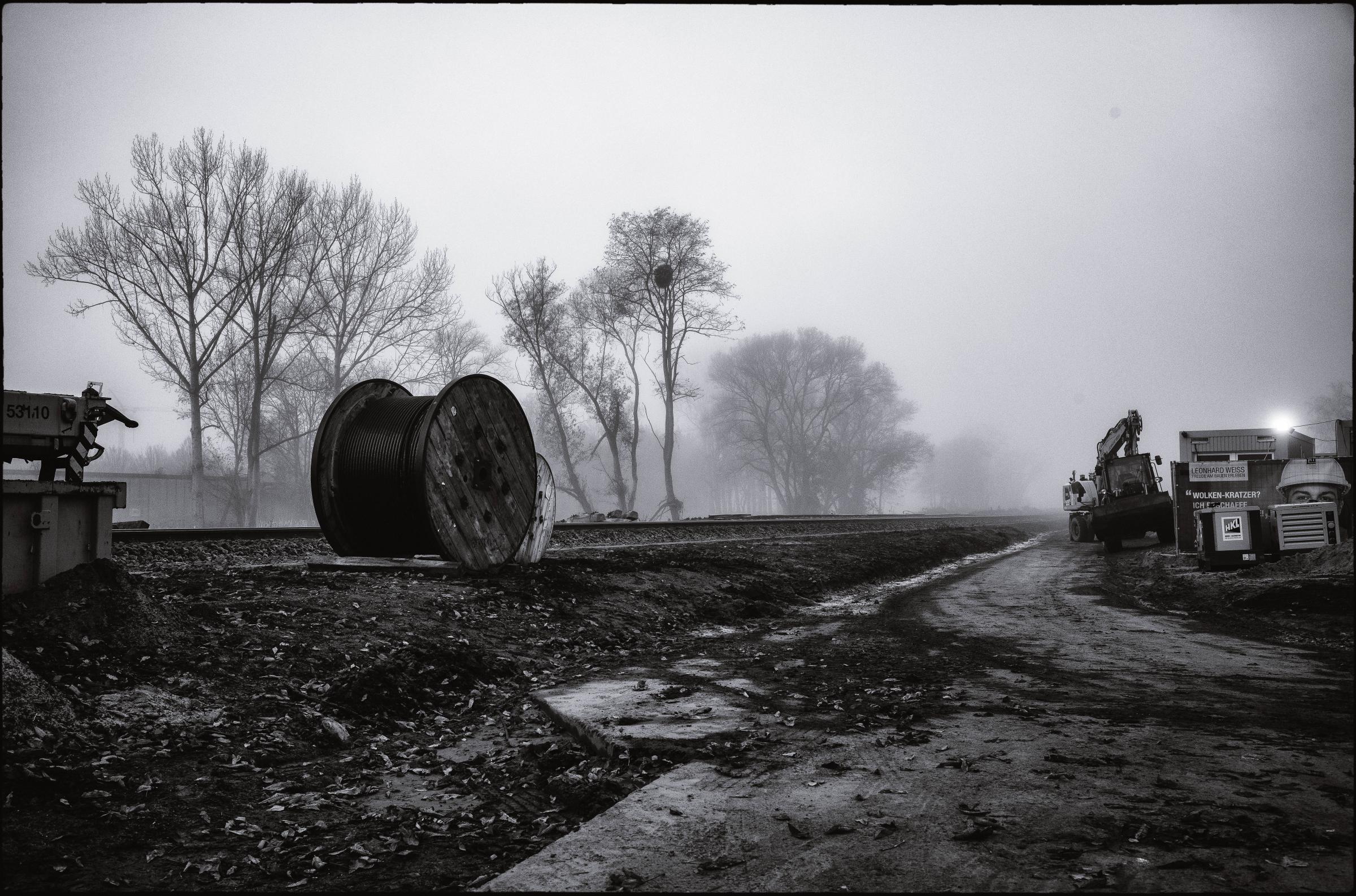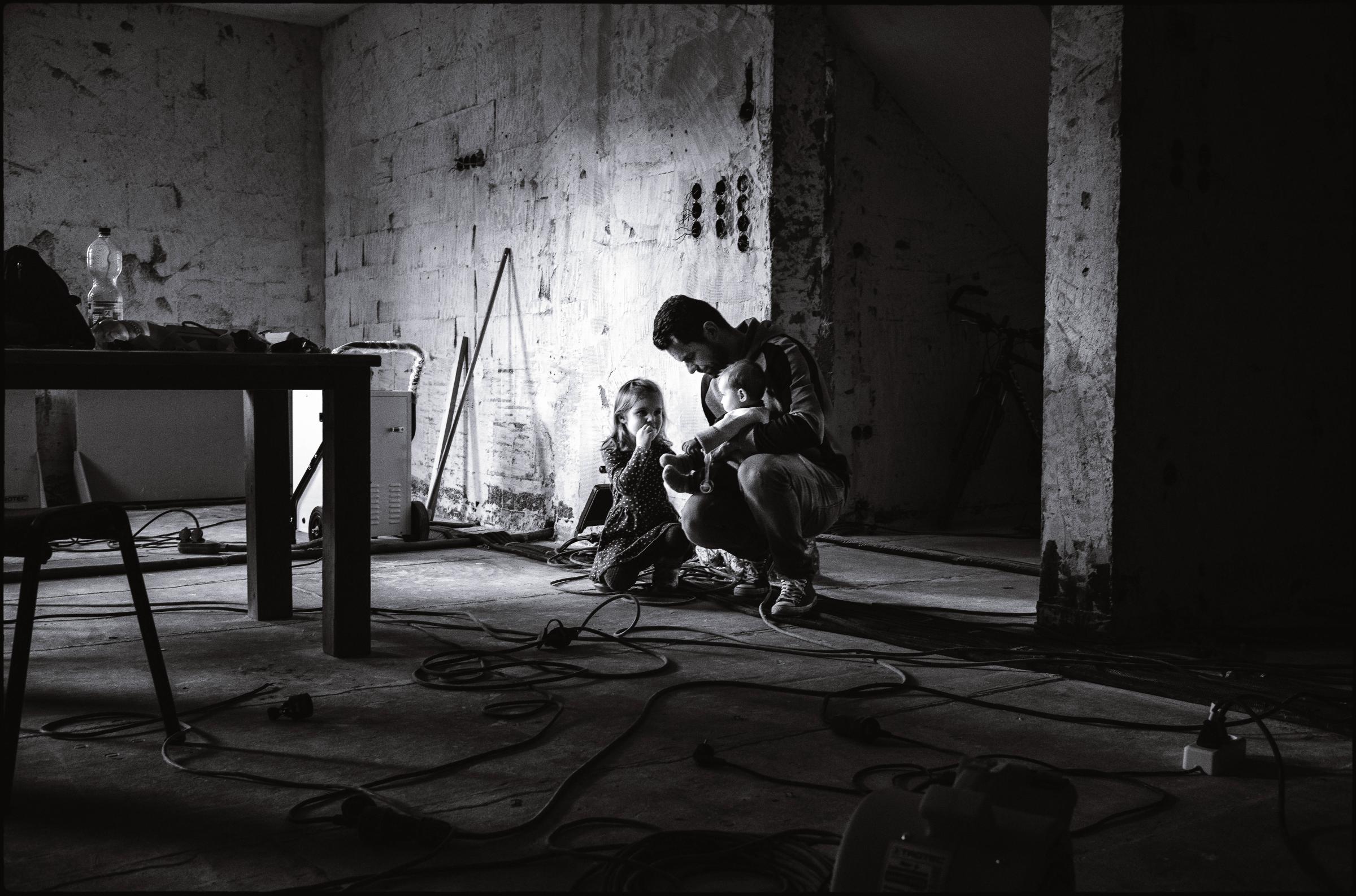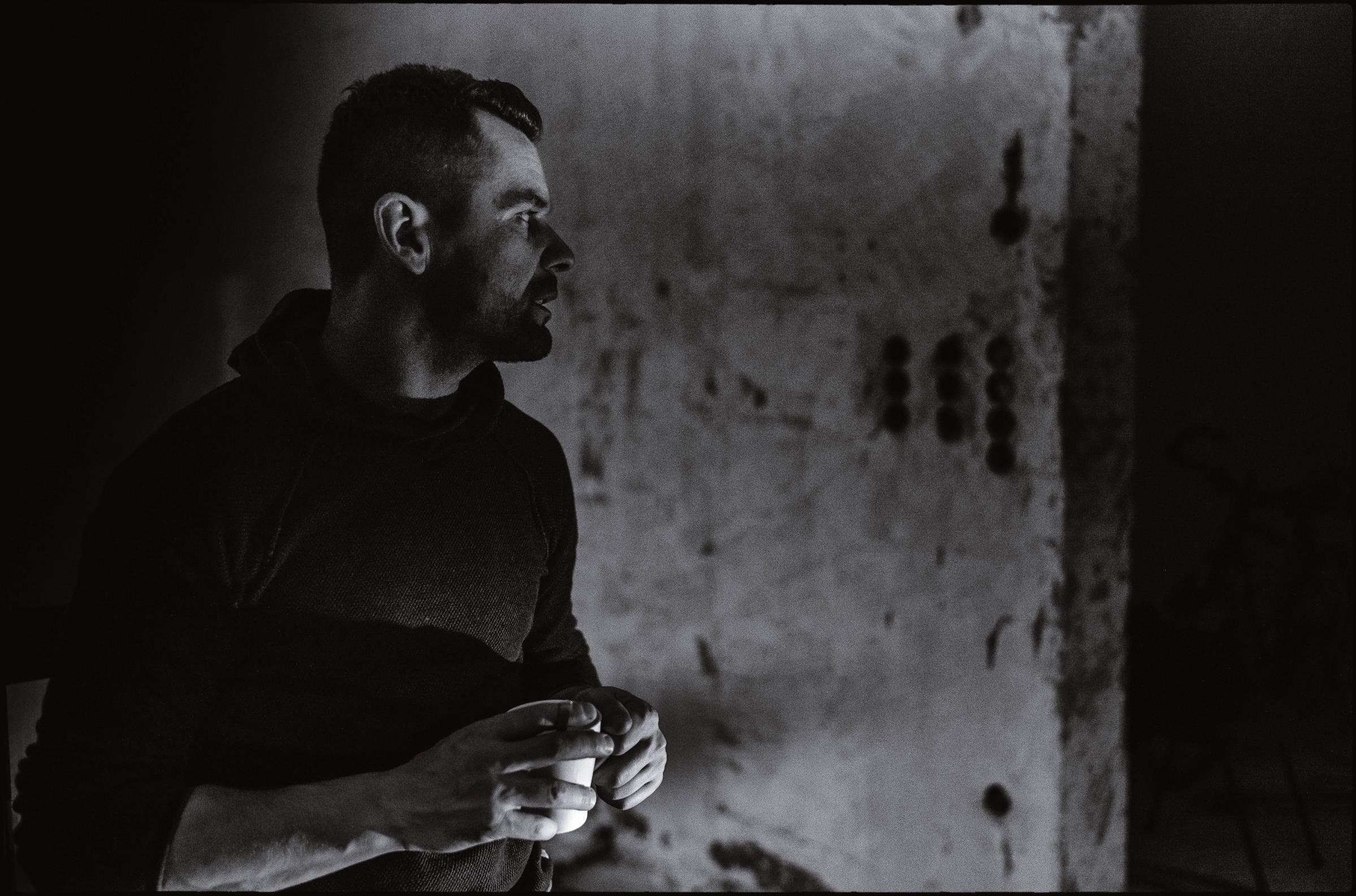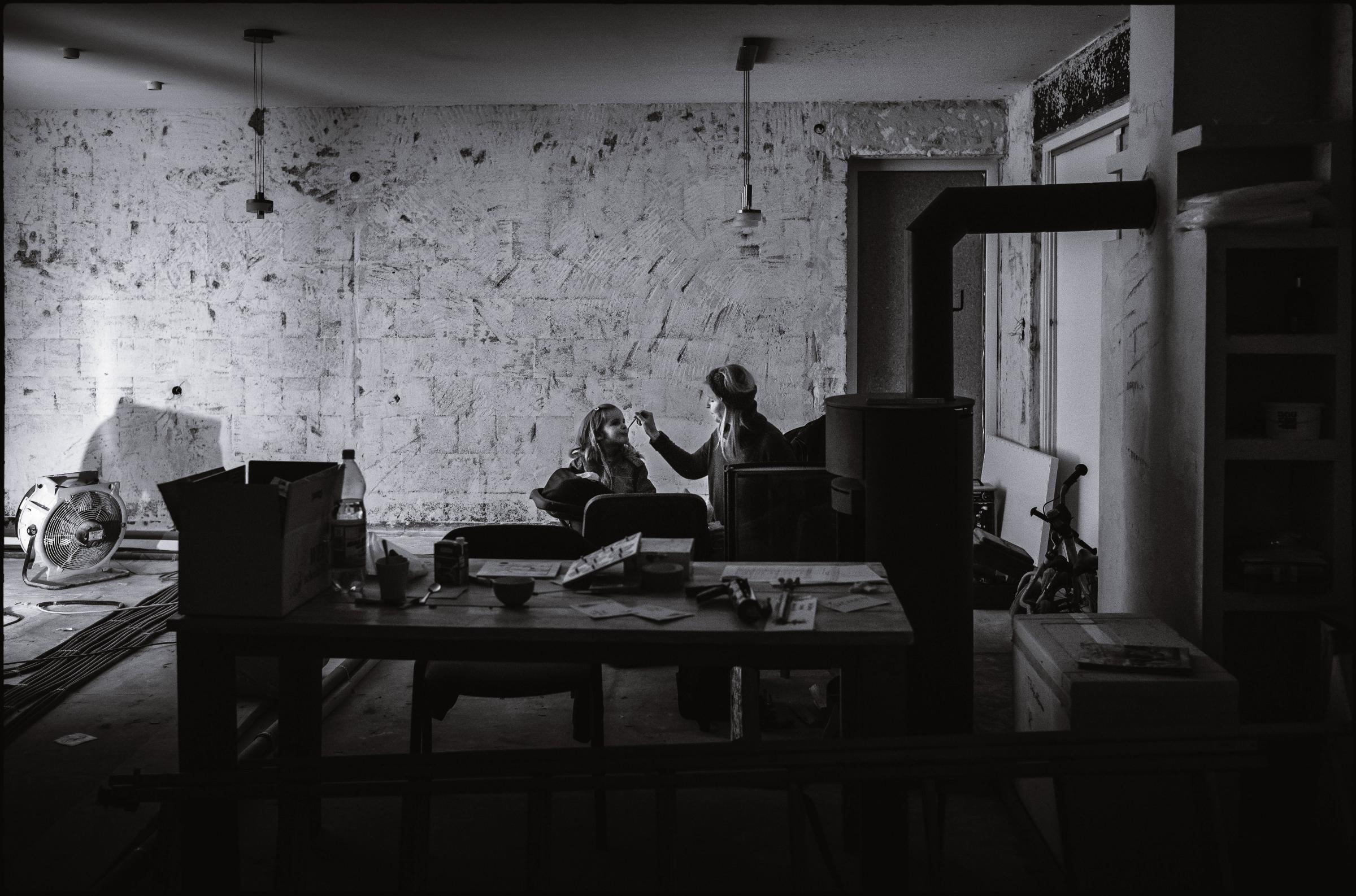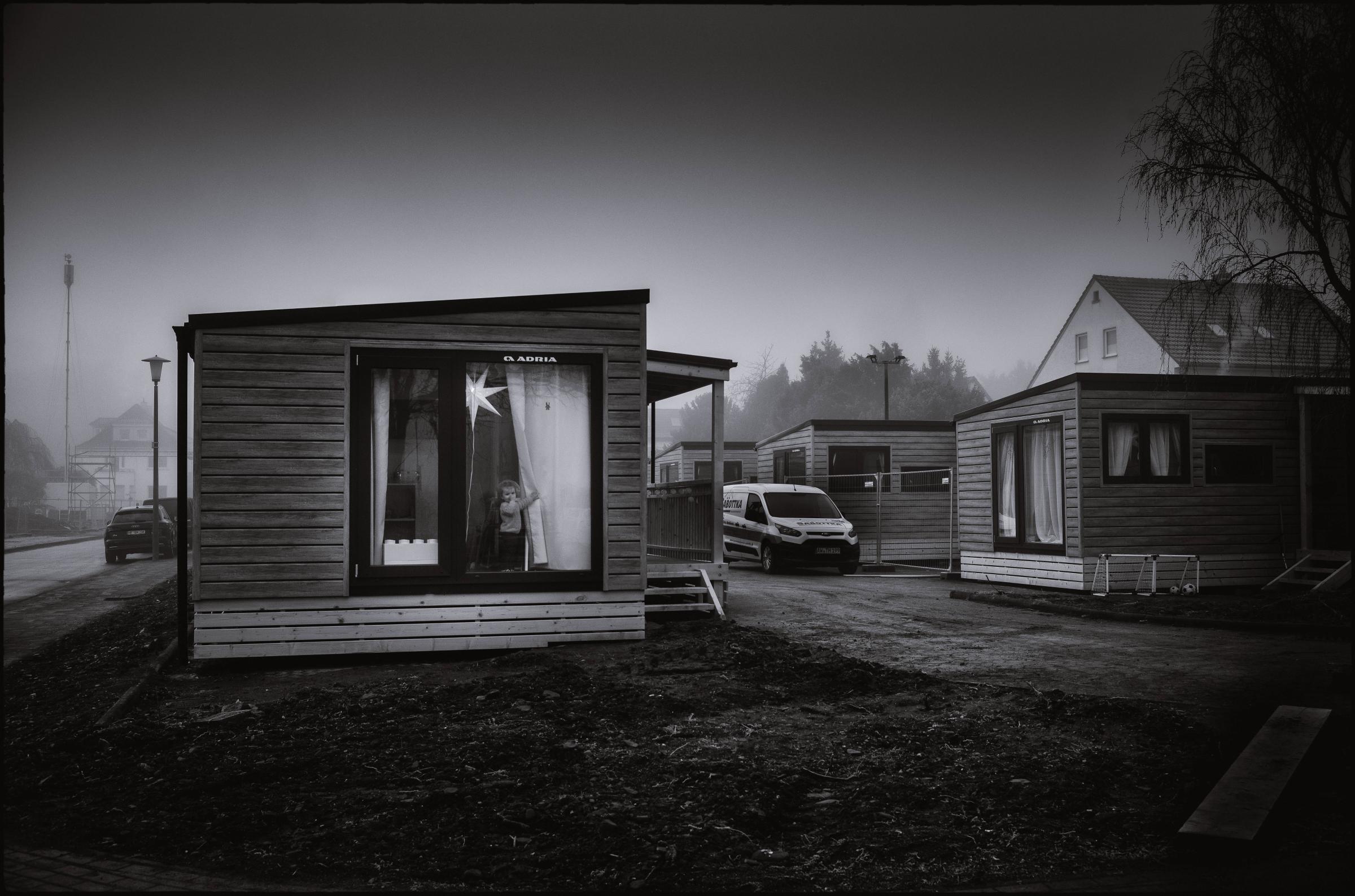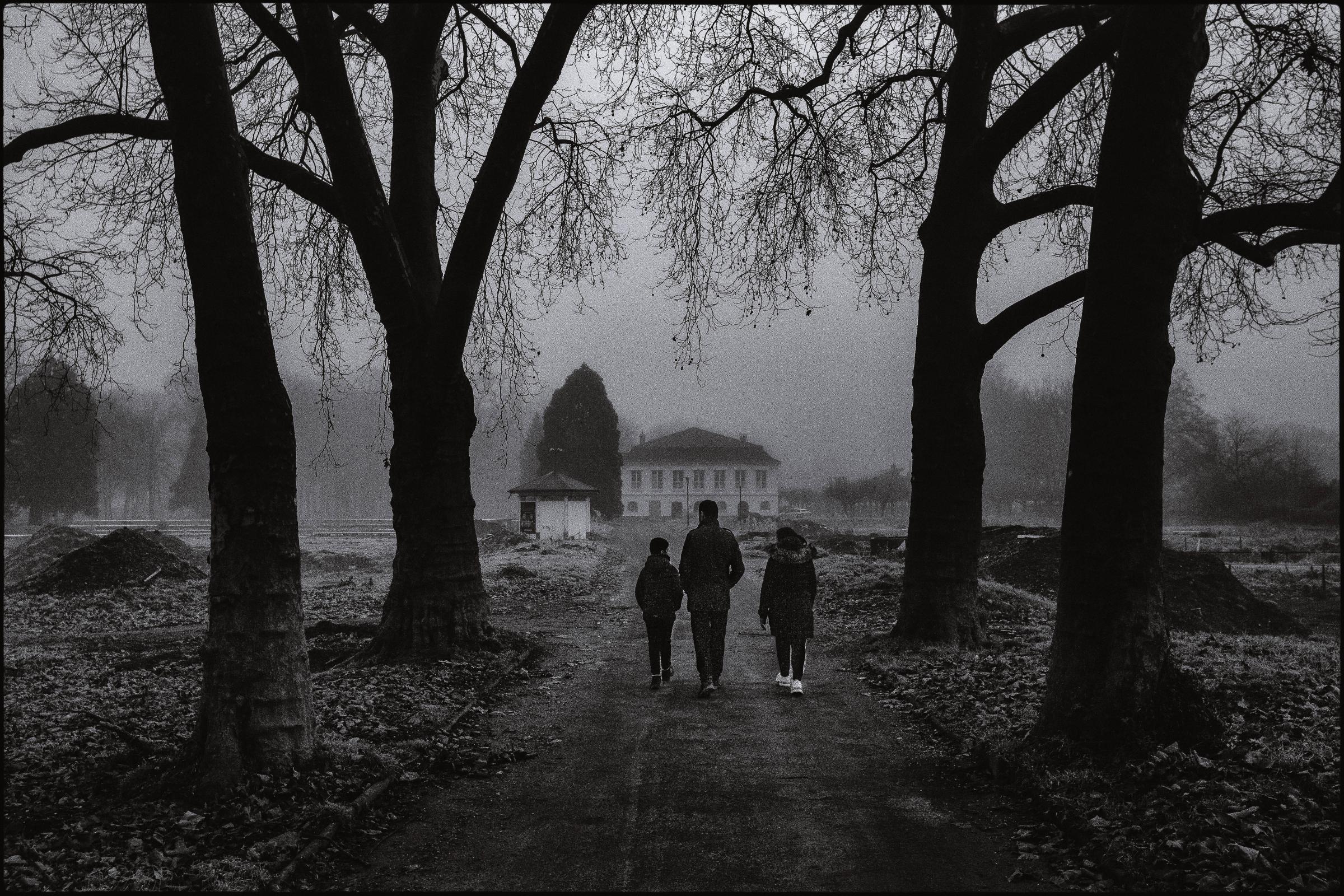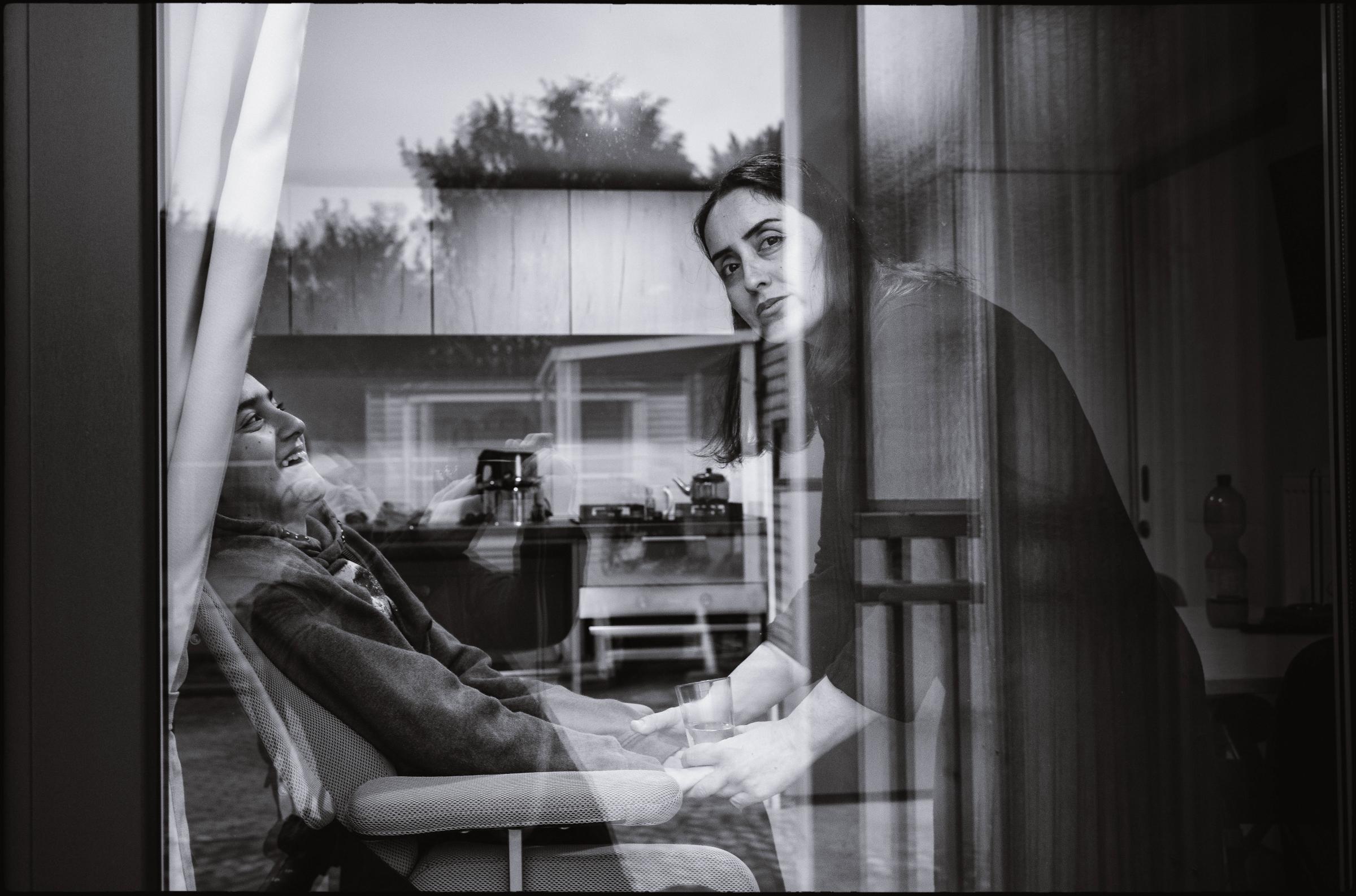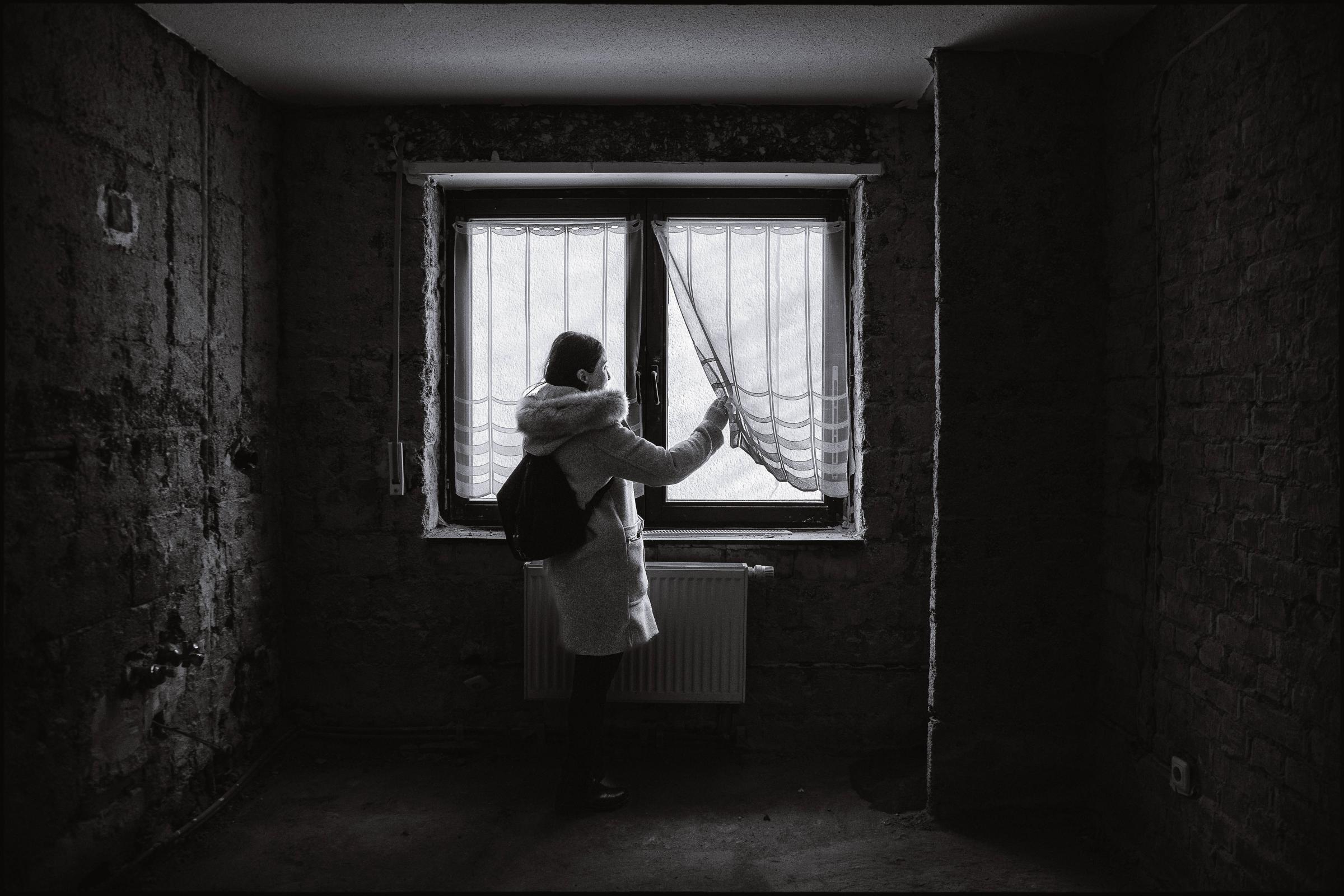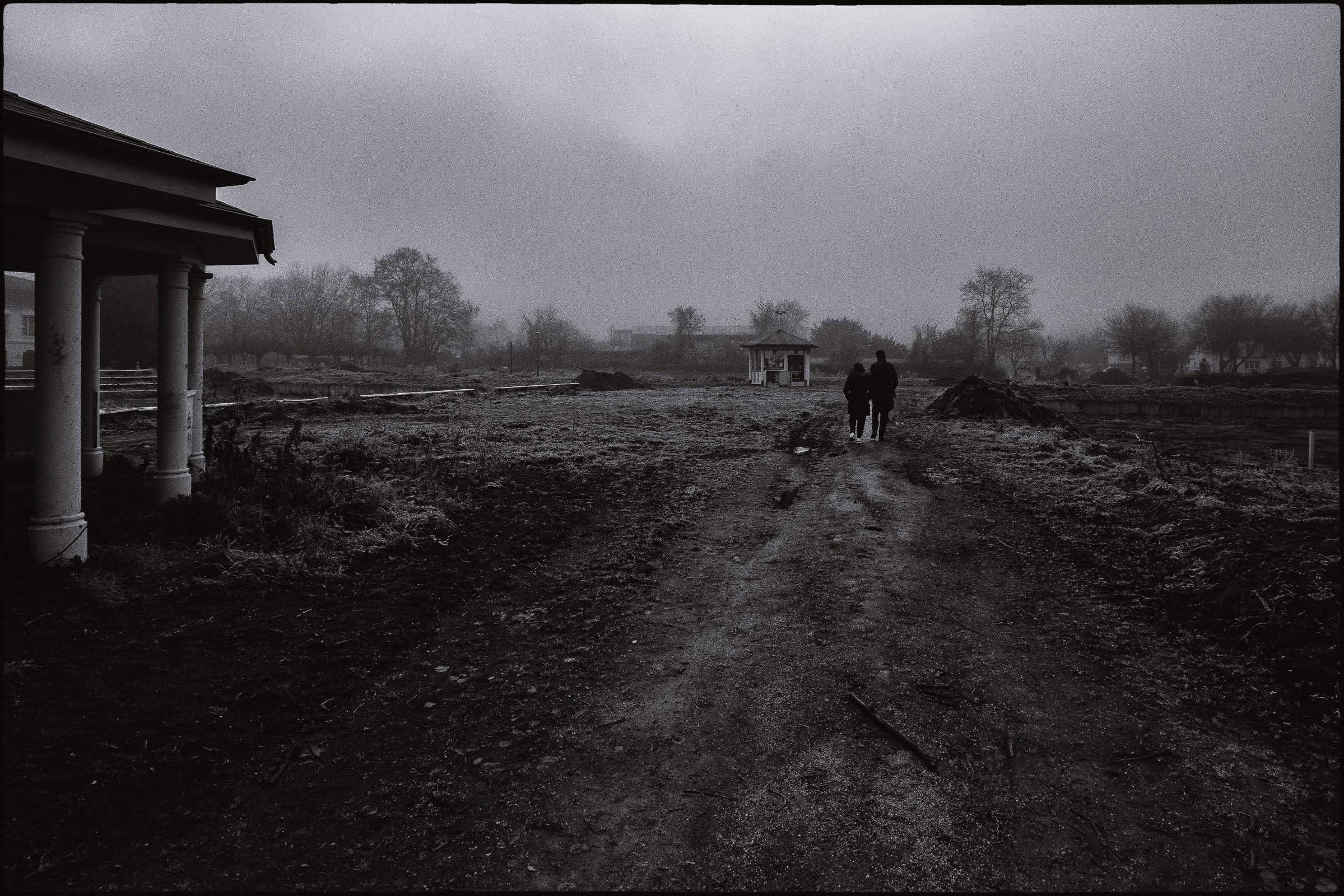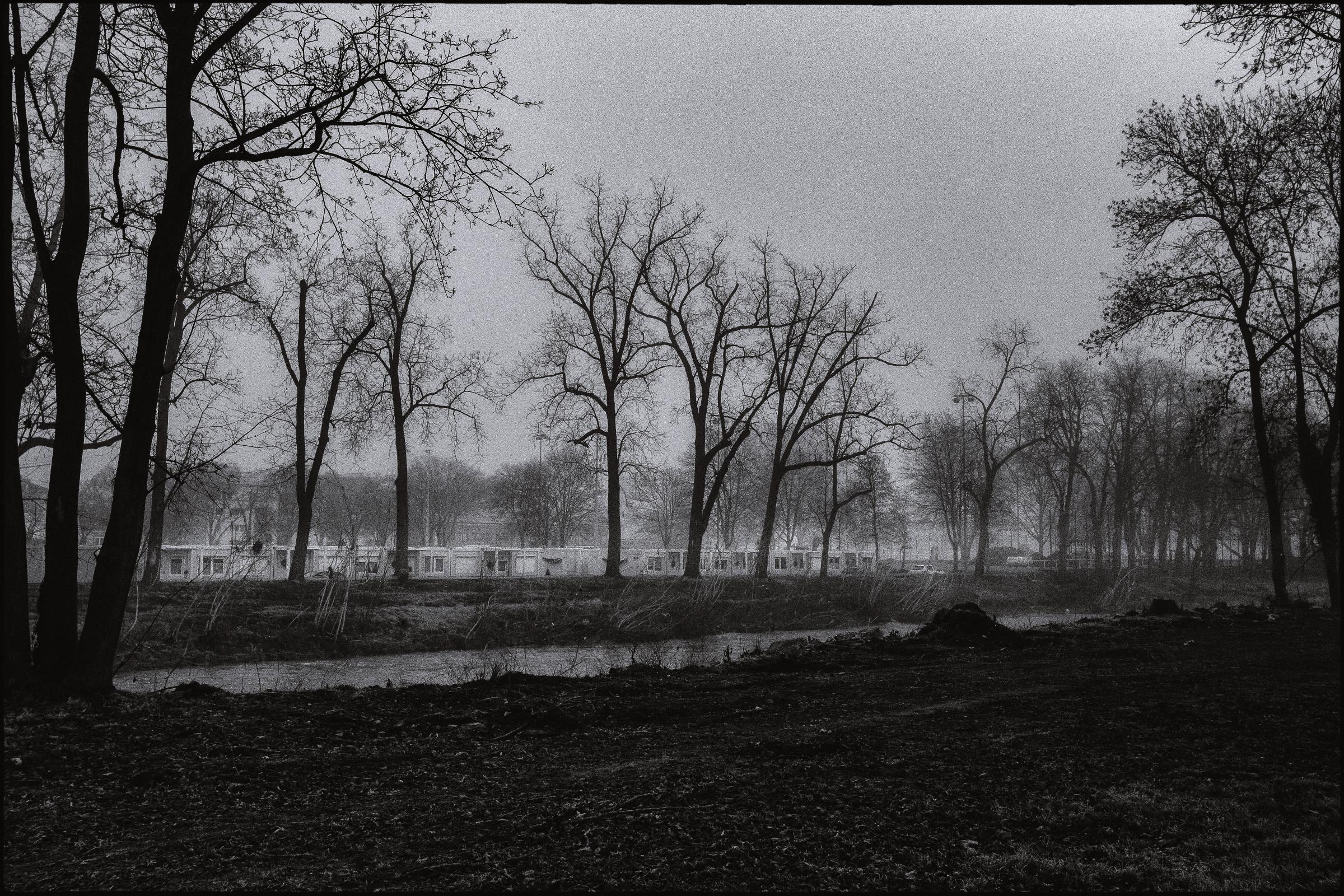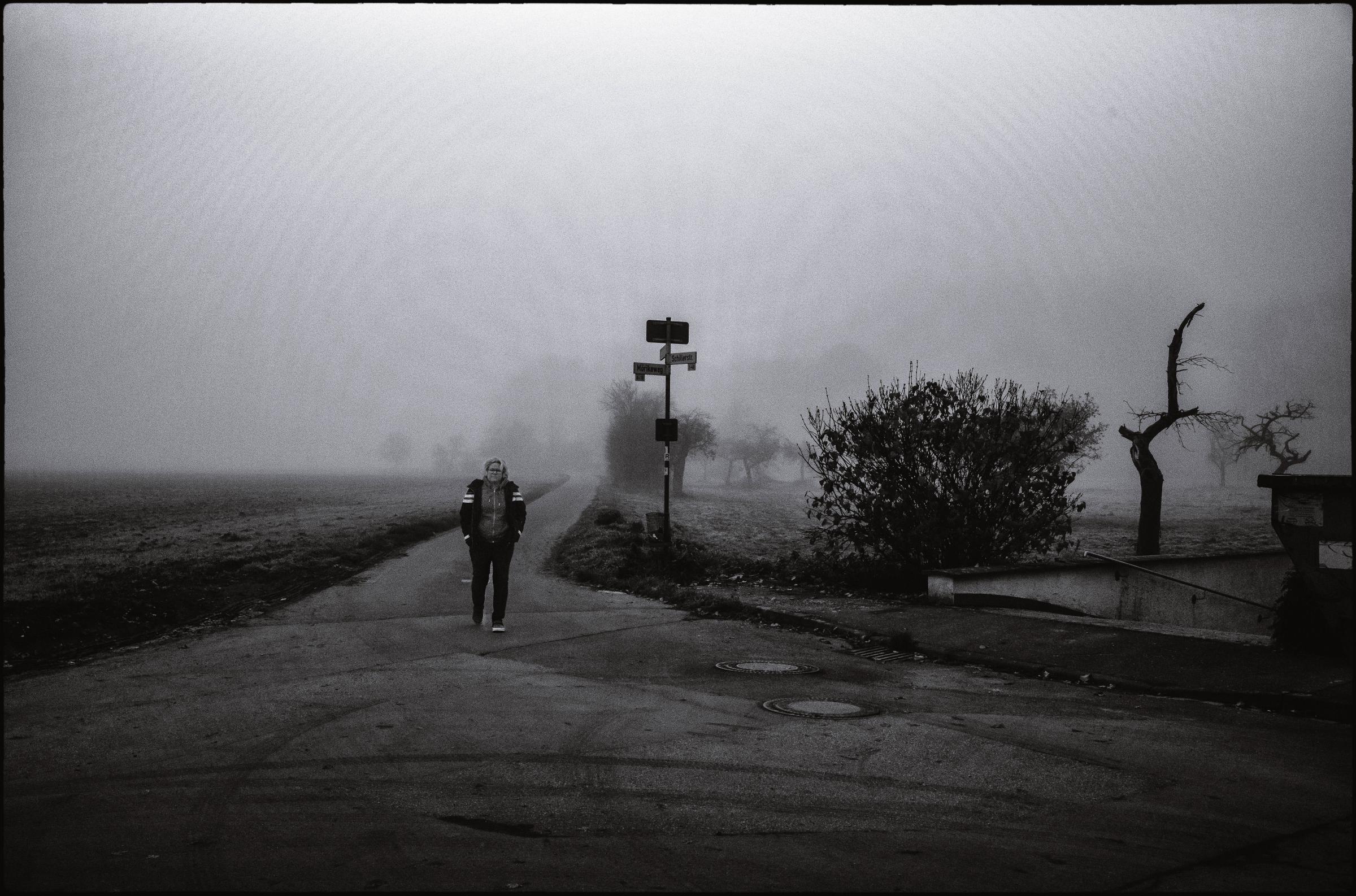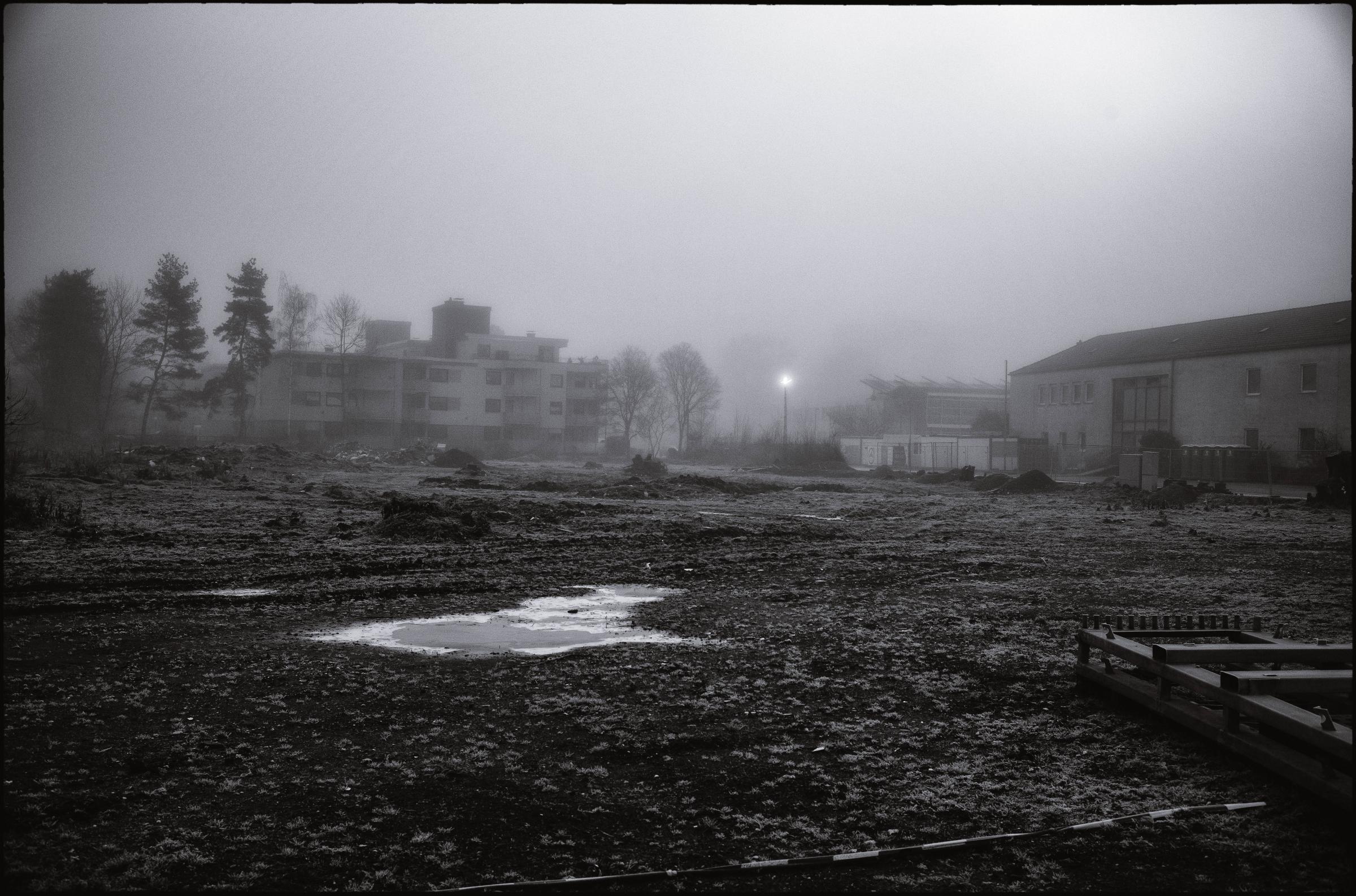Marcel Mayer, The Darkest Night
In my series 'The Darkest Night' I document the effects of the flood disaster in the Ahr Valley on July 14/15, 2021. With a reserved gaze I try to accompany affected people from different regions of the Ahr Valley in my long-term project.
It is not just about a singular event or the individual fates of the people in the Ahr Valley. Nature in general demands a change, which the protagonists, all people in the wine region of the Ahr Valley and also worldwide have to face. The question of necessary changes to live in harmony with nature is reflected in the photographs, which were taken in the period from July 15, 2021 to the end of February 2022.
The Darkest Night
'Unimaginable, unbelievable, incomprehensible' is only a rudimentary way to describe what happened in the Ahr Valley on the night of July 14-15, 2021: a huge flood wave ripped through towns and countryside within a few hours, taking away the livelihoods, homes and often loved ones of many tens of thousands of people.
'The Darkest Night' shows the effects of this destruction by a previously unimaginable natural disaster in the heart of Europe. The images reveal the power with which nature has presented itself here and the challenges faced by the local people. They reveal their paralysis of shock, furthermore show the infrastructure lying mutely fallow on the basis of destroyed buildings and lead through the first period of reconstruction.
Four families from different walks of life, representative of society and coming from different places along the Ahr valley from Laach to Bad Bodendorf, are silently accompanied over many months.
The Krämer patchwork family
Björn (occupational therapist), Weronika (housewife) and the children Julia, Leon and Lea from Laach. The Krämer family lost their home in the flood, which was completely destroyed and had to be demolished, and their livelihood due to their occupational therapy practice, which was also completely destroyed. Björn Krämer had to watch on the night of July 15, 2021, as the flood first swept away his neighbors' house along with its occupants - and then destroyed his own family's home. The family has lived for a year now in a two-bedroom vacation home that sits behind the old residence. They are waiting for funds and permission to rebuild the house. At least Björn Krämer can run his practice again after a meanwhile.
The Kurdish family Haji
Salman (employee), Hind (housewife) and the children Dler and Aras from Bad Neuenahr.
The Haji family was able to flee Iraq in 2019 after long turmoil and finally felt they had arrived in Bad Neuenahr. Until the flood, the Haji family lived with their severely disabled, wheelchair-bound son Djler and their son Aras in their small ground-floor apartment with three rooms. They were able to escape the floods at the last moment. The apartment is still not ready for occupancy. Therefore, the Haji family currently continues to live in a small Tiny House settlement, which was built on the parking lot opposite the swimming pool in Bad Neuenahr.
The retired couple Renate (80) and Rainer (82) Mayer from Ahrweiler
The Mayers, both war children in their 80s, have spent their lives in the Ahr valley and are facing the ruins of everyday life at the end of their lives. The familiar routine, the tranquil surroundings and an intact infrastructure - destroyed in one night. Waking up and cut off from the environment on the south side of the Ahr, they spent weeks without water, electricity and months without gas until the cold November weeks in their family home above Ahrweiler, their pride and joy. The flood came to a halt on the other side of the road and destroyed almost the entire surrounding area. Renate Mayer subsequently suffered two strokes and struggled to survive.
The Haxhiu-Juchem family
Arianit and his wife Stefanie (teacher) with their two daughters Greta and Alma from Heppingen. The Haxhium-Juchem family had fulfilled their dream of owning their own home: Their house in a new housing development in Heppingen was completed just before the flood - in an area that was originally alluvial land of the Ahr River. They did not yet have insurance against natural hazards. The house was completely destroyed up to the second floor, and the family had to live with Stefanie Juchem's parents for just under a year, painstakingly rebuilding their house and garden themselves. It is still being discussed whether this alluvial land was basically suitable as building land.
